

PROVING THE GOOD WE DO: Using data to highlight the sector’s positive impact p44
THE STATE OF PLAY:
Leisure DB report shows fitness sector is in a period of strong growth p36



18-19 JUNE









200+ Exhibitors

1000+ Products
200+ Speakers














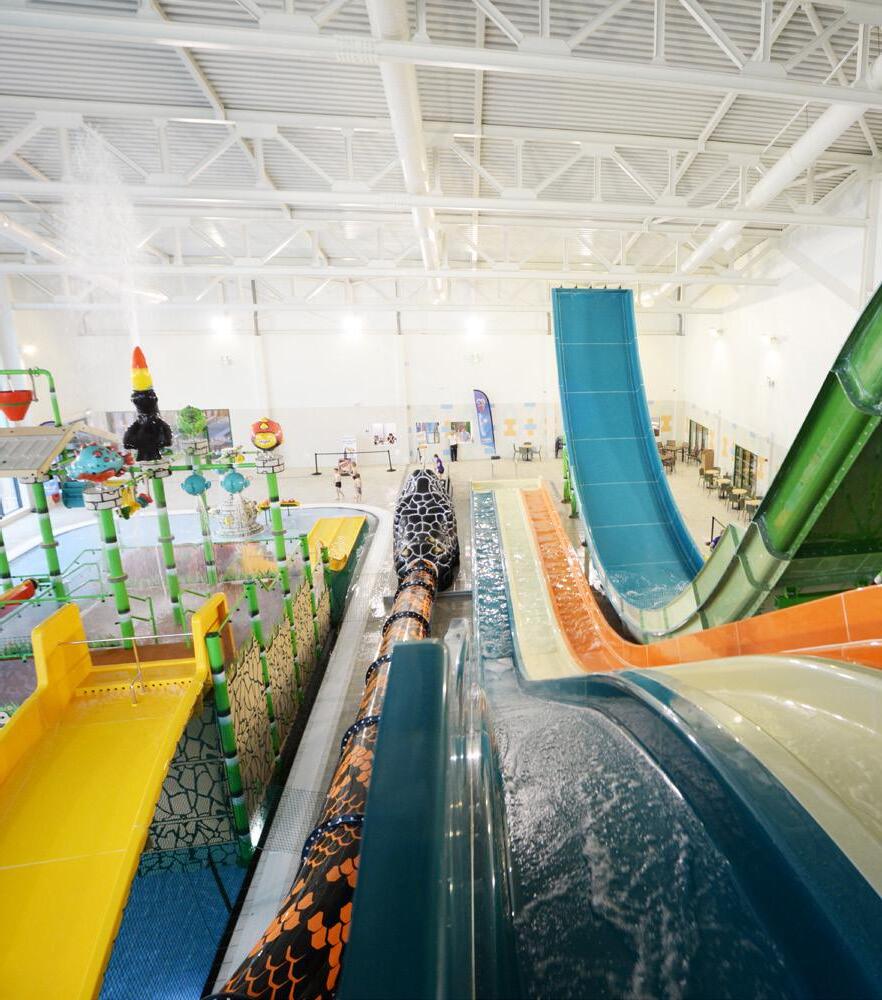
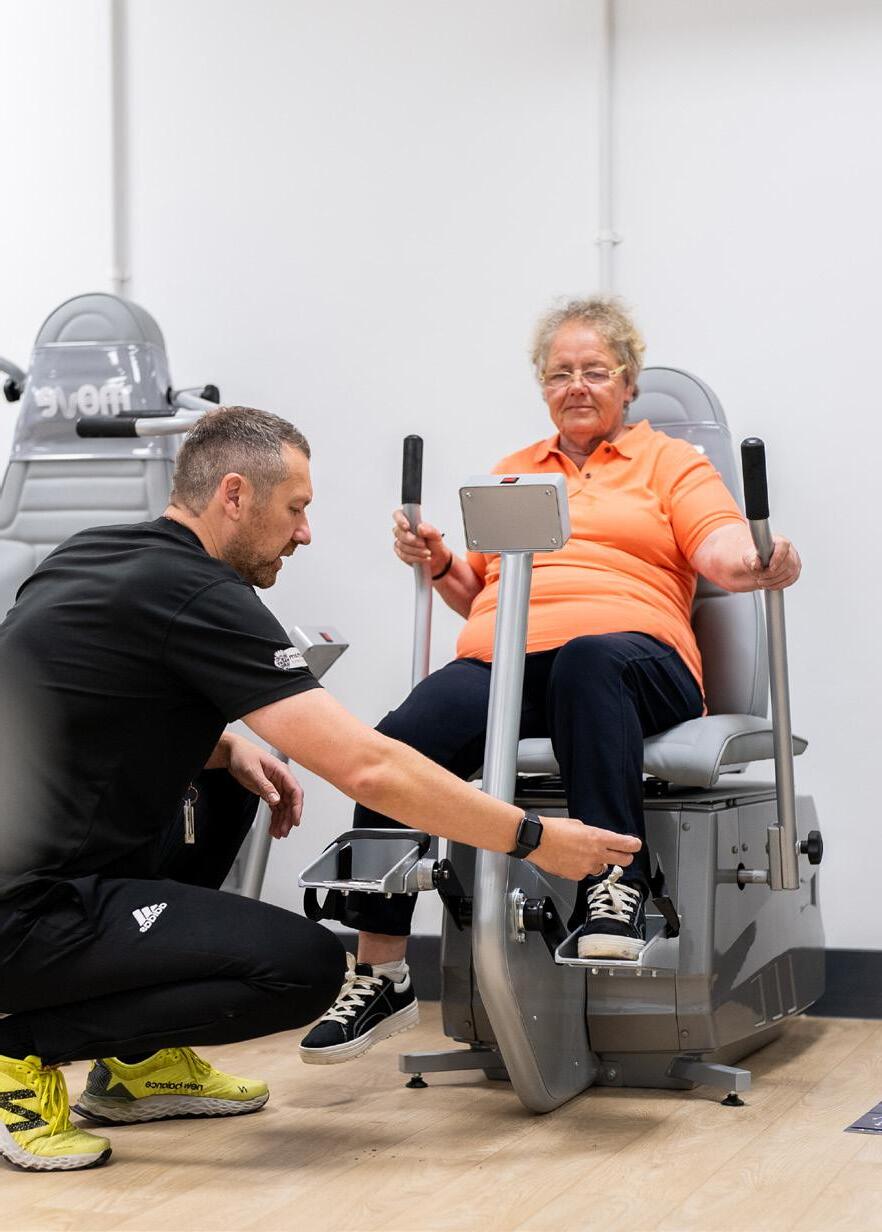


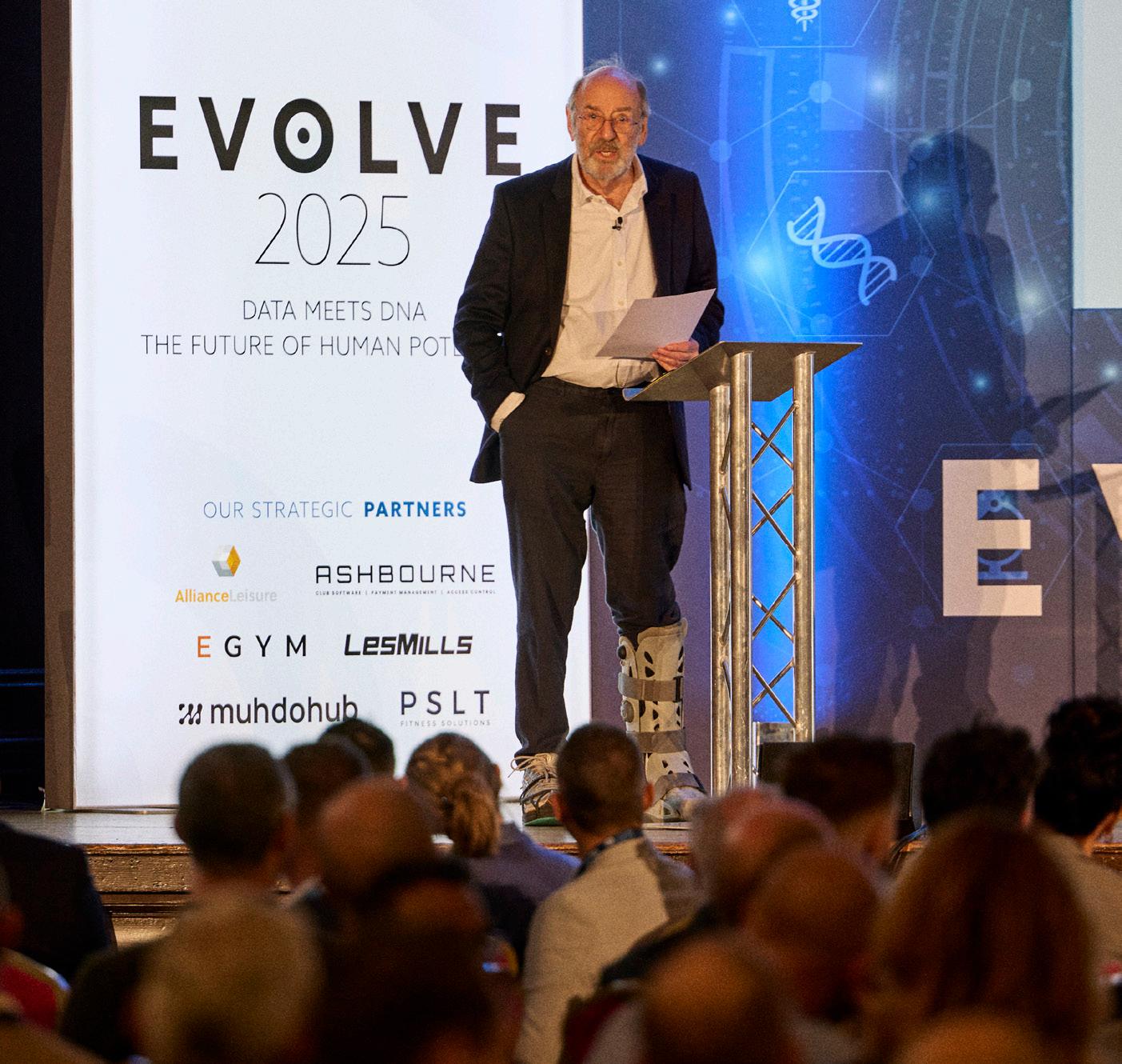



PROVING THE GOOD WE DO: Using data to highlight the sector’s positive impact p44
THE STATE OF PLAY:
Leisure DB report shows fitness sector is in a period of strong growth p36



18-19 JUNE









200+ Exhibitors

1000+ Products
200+ Speakers



















The UK fitness industry saw “strong growth” across all key performance metrics during the year to 31 March 2025.
The number of gyms and health clubs in the UK increased by 2.8 per cent to 7,202 – a figure that falls only slightly short of the pre-pandemic high of 7,239 gyms recorded in 2019.
The sector also experienced growth in three other key areas, setting new records in membership numbers, market value and penetration.
Across the UK, there are now 11.3 million gym members (an increase of 5.4 per cent compared to 2024), which means that 16.6 per cent of the UK population is now a member of a gym (up from 15.9 per cent in 2024).
Meanwhile, market value has reached £6.5bn, an increase of 9.3 per cent on 2024.
The figures come from the latest edition of the annual State of the UK Fitness Industry Report, published by Leisure DB.
According to the report, the overall industry growth is driven by the private sector, which continues to perform strongly, with growth in gym count, member numbers, market value and penetration.
Leisure DB founder, David Minton, said: “It gives me the greatest pleasure to read this report and see the key industry metrics reaching an all-time high. The growth in member numbers, market value, and penetration has exceeded that of any previous year.
“These findings signal a new era for the fitness industry.”
• For a more detailed and indepth analysis of the report, please turn to p. 36.

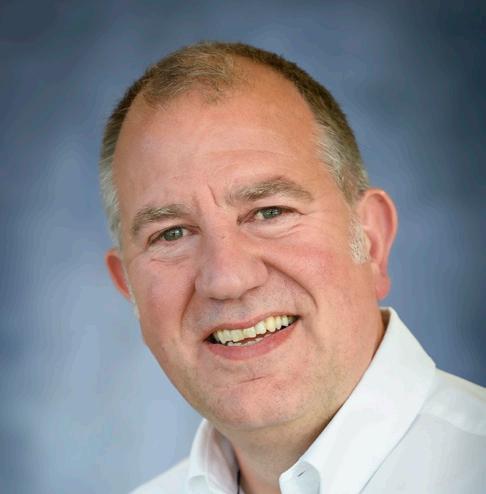

The sector’s health and safety and quality management expert, Right Directions, has been awarded the industry’s contract to deliver the assessments for ukactive’s The Active Standard (TAS).
TAS is designed to give customers confidence, knowing leisure providers showing the TAS mark are taking their health and wellbeing, as well as their safety, seriously.
Initially launched by ukactive in November 2024, Right Directions was instrumental in the pilot phase of TAS, meticulously testing the assessment with a representative sample of operators to ensure the certification is fit for purpose for organisations of all types and sizes.
TAS accreditation is free to any sport, fitness or leisure facility in the UK that is a member of ukactive and is achieved through a 40-question independent assessment with Right Directions. It covers health and safety practices, professional standards, safeguarding procedures and data protection

The standard is designed to give consumers confidence in the facilities they use
processes. Certification lasts three years before a re-assessment is required.
Caroline Constantine, Managing Director of Right Directions, who led on the development and pilot of The Active Standard for Right Directions, explains: “The original assessment contained more than 100 questions
for operators to answer and provide evidence for. Working through a detailed pilot, capturing feedback from the industry, we have now condensed this into a user-friendly system, facilitated on Microsoft Teams, that encourages operators to actively get behind the quality mark.”
Alliance Leisure has appointed Tara Dillon, CEO of CIMSPA and industry veteran, David Stalker, to its board as Non-Executive Directors. Dillon has led CIMSPA since she was appointed CEO in February 2015 and has been instrumental in the organisation’s work to drive up professional standards and workforce development within the physical activity sector.
Stalker is a lifelong advocate for physical activity and an investor and advisor to businesses across the sector. As the former President of EuropeActive he has consistently championed the role of leisure in transforming lives and strengthening communities. In her new role, Dillon will help Alliance to further drive its people-first approach, while Stalker will bring extensive leadership as well as operational and strategic experience to the board.
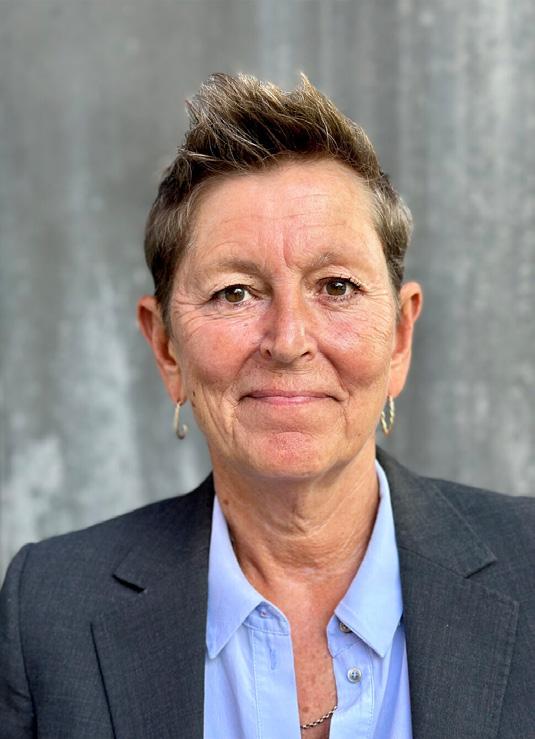



The rate of pool closures is increasing rapidly
“Government needs to act” after 500 swimming pools lost since 2010
The increasing pace of swimming pool closures across the UK shows that the government needs to act swiftly to ensure even more communities aren’t left without vital spaces for physical activity and social connection.
Two industry bodies, Swim England and ukactive, have raised concerns after research revealed that more than 500 swimming pools have been forced to close permanently since 2010.
Even more worryingly, the rate of closures is increasing rapidly, with 76% of the publicly accessible water space lost in the past 15 years having disappeared since 2020. With increasing financial pressures, ageing facilities and rising operational costs, many more pools and leisure centres are at risk of closure over the next few years.
The lack of pools is already having direct, negative results. According to Sport England’s latest Active Lives Children and Young People survey for the 2023-24 academic year, 30% of children in Year 7 are unable to
swim 25m competently, confidently and proficiently, a statistic that has risen from 27% in 2017-18.
ukactive and Swim England are now urging the Government to provide support for swimming pools and leisure centres as part of the Spending Review.
The bodies are also calling for the Government to provide a comprehensive strategy for the future of gyms, swimming pools and leisure centres, that supports their renewal and growth so they can play their fullest role in boosting the economy and reducing health inequalities.
They claim that, without targeted support, the loss of water space across the UK will likely continue to accelerate, further impacting public health, wellbeing and local economies as people struggle to access facilities.
Andy Salmon, CEO of Swim England, said: “For those living with health conditions who may struggle to be active on land, access to pools can be life-changing.”

The sector generates social and economic value worth £107bn
Call to prioritise physical activity and to invest in facilities
The National Sector Partners Group (NSPG) has written to Prime Minister, Keir Starmer, ahead of this month’s Spending Review to urge the government to back the sector through a “sustained plan for investment”.
The letter states that a failure to prioritise the sector in the review would see “more facilities and clubs close or decline, a reduction in physical activity levels, greater health inequalities and lower productivity”. The UK’s physical activity levels rank a lowly 11th in Europe among comparable nations and the most recent participation data from Sport England shows significant inequalities remain across different demographic groups and communities.
Despite this, research suggests that the sector generates social and economic value worth more than £107bn annually, through improvements to wellbeing and direct health and social care savings. It also contributes almost £100bn annually in direct economic output – equivalent to 2.5% of total output.
In the letter, the NSPG urges the PM to “Enhance the nation’s sport, recreation and physical activity infrastructure through sustained investment in high quality, sustainable and affordable community facilities and in our precious green and blue spaces.”
It also calls for a new national strategy which would “join up spending across Government and focus on prevention”.

The Gym Group has appointed Tamsin Todd as a Non-Executive Director to its board. Todd, a former CEO of Findmypast, has vast experience in several sectors, ranging from e-commerce to travel. Her previous roles have included MD of the ski and lakes division at travel giant TUI Group and global head of e-commerce products at gaming firm Betfair. During her career, she also spent six years at Microsoft and seven at Amazon.
Justin McDonell and Richard Peil, the entrepreneurs behind Anytime Fitness Australia, have acquired a majority shareholding in the Anytime Fitness UK and Ireland Master Franchise.
The acquisition sees McDonell and Peil joined by RM UK, LLC, an indirect subsidiary of Purpose Brands (the global owner of the Anytime Fitness brand), and existing shareholder Marcello Jimenez.
McDonell and Peil have built Anytime Fitness Australia into the country’s largest gym network, with more than 580 clubs and over 700,000 members. They will now look to strengthen the brand’s position across the UK and Ireland, where there are currently more than 180 Anytime Fitness clubs.
Commenting on the acquisition, Richard Peil said: “This is a proud moment for us. Anytime Fitness is a globally respected brand, and we’re excited to bring our experience and passion to the UK. With a strong network already established and a thriving fitness industry, we see enormous potential to build on the excellent foundations laid to date.”

McDonell added: “We’ve grown a values-driven business in Australia by prioritising club standards, franchisee success, and member satisfaction. We firmly believe these principles are universal and we’re excited to apply them here in the UK to support network growth and deliver greater value to members.
“We’re committed to fostering long-term, sustainable growth, driven by collaboration, quality and a deep commitment to our people. This marks an exciting new chapter for Anytime Fitness in the UK and Ireland.”
At The Gym Group, she will join the Audit & Risk, Remuneration, Nomination and Sustainability Committees.
John Treharne, Chair of the Gym Group board, said: “I’m delighted to welcome Tamsin to The Gym Group. Her extensive experience in product, data and technology across multi-site businesses will be invaluable to the Board and the Company as a whole; we look forward to working with her.”

Gill Cummings-Bell will step down from her role of CEO at EMD UK, the national governing body for group exercise, later this year.
Announcing her departure, the NGB said her tenure had been marked by “a deep commitment to transforming professional recognition” of the group exercise workforce. CummingsBell steered the organisation for two years, during which EMD UK’s membership grew tenfold – to more than 18,000 group exercise professionals.
Leisure DB’s Monthly Market Tracker lets you quickly identify and respond to new opportunities in the market and on your doorstep.
Each month, we round up key developments in the UK gym market: openings and closures, planning updates, proposed expansions, rebrands, management changes and more.
Keep your finger on the pulse and your business one step ahead.
Find out more and download a free sample report: leisuredb.com/market-tracker
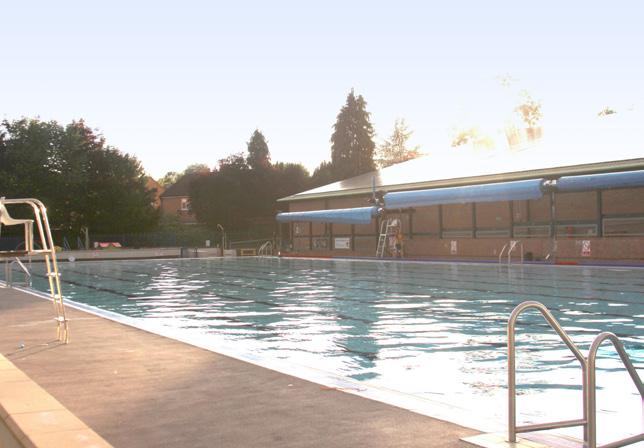
Banbury lido reopens to the public after £160k revamp
The refurbished 50m outdoor swimming pool at Woodgreen Leisure Centre in Banbury reopened to the public on Monday 19 May. Cherwell District Council has invested £130,000 into improving the popular facility ahead of its opening. Upgrades at the site include new showers and toilets, as well as improvements to the changing room facilities.
The facilities have also been made more accessible with the installation of a step-free shower for people with disabilities. The improvements at the centre – which is operated by Legacy Leisure, a partner of Parkwood Leisure, on behalf of the council – have been paid for by Section 106 monies secured through legal agreements with developers. In addition to the pool itself, the outdoor areas at Woodgreen also have a flume, an interactive aqua splash zone for toddlers, and a snack bar.
Councillor Rob Pattenden said: “The Woodgreen pool first opened to swimmers in 1939 but with this year’s renovations and the addition of an eco-friendly solar thermal heating system in 2022, it is very much moving with the times.
“Swimming is such an accessible and beneficial form of physical exercise and so it’s a brilliant way for us to invest in our communities’ health and wellbeing.”

Work begins on £38m leisure and wellbeing hub in Caerphilly,
Construction work has begun on a new £38m leisure and wellbeing hub in Caerphilly, Wales.
The two-storey, timber clad building will house a six-lane swimming pool and wet play area and large changing zone, as well as a health club with a large gym floor, two flexible studio spaces, a group indoor cycling studio, two squash courts and a power-assisted wellness suite.
The building also includes a café, a large adventure play facility, a TAGactive Arena, lounge area, two flexible consultation rooms and a dedicated social space for use by community groups.
All facilities will be fully accessible and will include a Changing Places facility and a pool pod for assisted access in and out of the water.
Located close to the town’s public transport hub, the development is transforming an area of disused scrub land into a vibrant community hub that will support and encourage healthy, active lives.
“The facility will be owned by Caerphilly County Borough Council (CCBC), which has appointed Alliance Leisure to deliver the project, working alongside Morgan Sindall (Contractor) and architects Watson Batty, with Hadron Consulting overseeing project management.
Julia Goddard, Regional Director, Alliance Leisure, said: “The Alliance team has been working with the council on this project since 2022 so it is fantastic to finally see a vision being turned into a reality.
“The new building integrates modern technologies to create an efficient, air source-powered environment, housing an array of innovative facilities that directly match the needs of the community.”
The project is being funded through £20m worth of funds from the government’s Levelling Up Fund – part of the Caerphilly Town 2035 placemaking regeneration plan and by reserves held by CCBC.

Redefine lower body training in your gym and help your members reach their goals with the NEW Smart Strength Squat.
Learn more
EGYM launches AI-driven squat innovation to power the next generation of gym personalisation

EGYM is redefining how fitness professionals assess, prescribe and measure strength training with the launch of its pioneering Smart Strength Squat and accompanying Squat Flexibility Test. These innovations go far beyond equipment and software upgrades; they unlock the potential for gyms to deliver clinically relevant, results-oriented, personalised fitness and health offerings at scale.
By empowering trainers to prescribe accurate and effective strength training programmes, EGYM is helping the physical activity sector become a more credible partner in the government’s ambition to move towards a community-driven, ‘prevention over repair’ health strategy that supports the NHS to turn the tide on public health.

Seamlessly integrated into EGYM’s open, AI-powered ecosystem, these advanced tools deliver a deeper level of effectiveness in outcome-based training that is safe, engaging, measurable and effective for everyone.
Steve Barton, EGYM UK Country Director, says: “ The squat is a complex, compound movement that engages the entire kinetic chain, delivering one of the most effective full-body strength exercises. However, the movement is technically demanding with a high risk of injury, therefore only suitable for those with experience.
The Smart Strength Squat addresses these issues by employing AI-powered guidance, automated setup and digital coaching, making this highly effective movement pattern safe and accessible for all experience levels.”
More than just a machine, the Smart Strength Squat is an intelligent training system. As part of EGYM’s award-winning Smart Strength series, this latest addition pairs digital resistance with automated adjustments and advanced training modes including isokinetic, negative and explonic, to optimise every repetition.
Designed to adapt effortlessly to every user’s needs, from beginners to advanced athletes and rehabilitation patients, the Smart Strength Squat offers the safest and smartest way to build lowerbody strength, improve performance, and support recovery. With its sleek design and precision engineering, it ensures safe and effective execution of the squat that delivers results like never before.
The Smart Strength Squat is supercharged by the Squat Flexibility Test, a new functional assessment
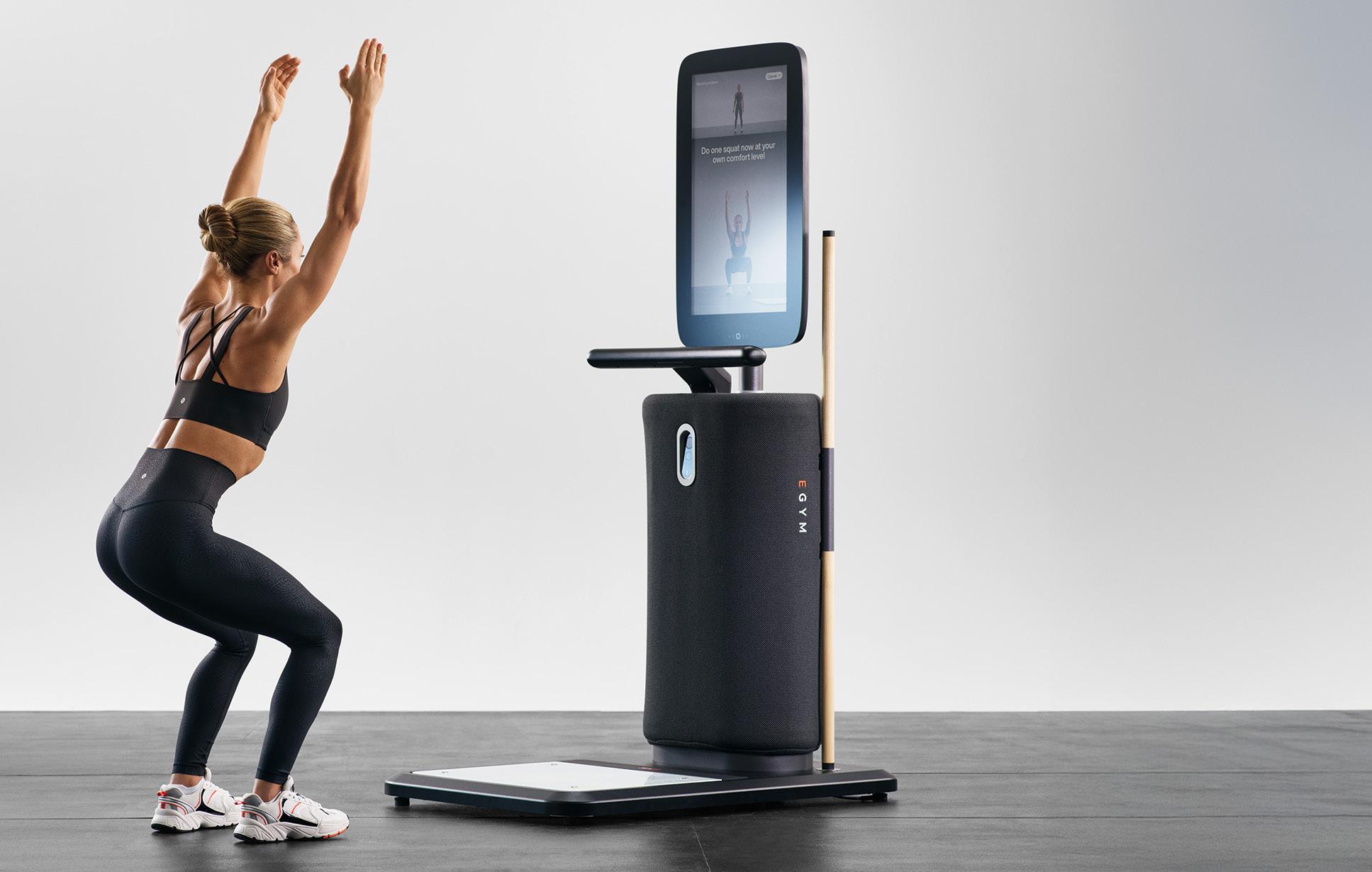
delivered through EGYM’s onboarding centre, the Fitness Hub. In just 25 seconds, users complete a guided squat while the system captures a 3D analysis of their mobility, stability and control. The result? A BioAge flexibility score that acts as a benchmark for joint health, muscular balance and functional capability.
These new innovations deliver a triple win. For trainers, they deliver a clinically relevant, easy-to-use onboarding and progressive training plan support tool. For members, they provide a clear, motivating benchmark that tracks progress and improves movement quality over time. For operators, they are a data-driven motivator that keeps members engaged for longer.
“The Smart Strength Squat is EGYM’s most advanced hardware yet,” adds Barton. “It brings an enhanced level of accuracy and adaptability to the ecosystem. When paired with EGYM’s Genius, executed through Fitness Hub, it delivers a truly transformational experience in personalised training.”
EGYM Genius is the dynamic AI-powered software solution that takes all of the data captured during onboarding and assessments to instantly generate a personalised, dynamic training plan tailored to the user’s goals, ability and available equipment. Genius constantly evolves through real-time workout data and expert insights, ensuring a smarter, ever-improving workout experience and integrates seamlessly with more than 200 of the world’s leading fitness brands.
With the addition of the Smart Strength Squat, EGYM takes a bold step towards making high level fitness and personalisation accessible to everyone.
Try out EGYM’s Smart Strength Squat and Squat Flexibility Test
EGYM will be showcasing the Smart Strength Squat and the updated Fitness Hub with the Squat Flexibility Test at Elevate, London Excel, June 18-19. To book a demonstration at Elevate: https://bit.ly/43N7z3d. To find out more about EGYM and its pioneering open ecosystem visit https://egym.com/uk
AI-powered programming, instant assessments, and smart equipment all work together to create a frictionless, results-focused experience that delivers real results for operators, trainers and members alike.
EGYM’s advanced ecosystem plays a considerable role in aligning the fitness sector with the government in its quest to support good health and limit sickness. Barton adds: “If our sector wants to be taken seriously as a health delivery partner, we need to prove we can prescribe and deliver physical activity interventions with the same level of success as more traditional, clinical interventions. This means user-centred programming with trackable, measurable outcomes. And EGYM’s open ecosystem makes this possible at scale.”
About EGYM:
EGYM is a vertically integrated market leader in the fitness and health industry with the vision of transforming healthcare from repair to prevention. EGYM partners with companies to improve employee health by providing access to fitness and health facilities and equips those facilities with smart gym equipment and digital solutions to offer an AI-driven workout experience for people of all skill levels. For more, please visit uk.egym.com.
Contact EGYM: Veronika Bystrova, International Marketing Manager veronika.bystrova@egym.com

Freedom Leisure has begun including free remote GP access to all of its members. The not-forprofit leisure trust, which operates more than 120 facilities on behalf of local authorities in the UK, will include the service ‘as standard’.
Offering GP access as part of fitness and leisure memberships isn’t new, but, in most cases, operators add the service to a premium membership or offer it as a chargeable bolt-on.
The GP service will be embedded in Freedom Leisure’s membership and covers not only the member but also their dependants.
Members can access same-day doctor-led GP appointments for themselves and their children from 8am – 10pm, 365 days a year.
The service also caters for personal preference, allowing members to select phone or video consultations, as well as the gender of the GP.
Delivered in partnership with HealthHero, the remote GP access will initially roll out in the Guildford and

Woking partnerships, with further sites coming on board throughout the year.
Freedom Leisure CEO, Ivan Horsfall Turner, said: “Our partnership with HealthHero supports our members and their families with easily accessible medical support, whenever they need it. Community is at the heart of everything
we do, so we felt strongly that this should be a benefit for our members, rather than creating a tiered option. As a not-for-profit leisure trust, we can continually reinvest in our offering and our partnership with HealthHero, which brings enhanced access to healthcare, is a great example of this reinvestment.”
A major £3.3m redevelopment of a leisure centre is set to get underway in Kilkeel, Northern Ireland.
Set to begin in July 2025, the works will create a more welcoming and up-to-date centre for all users. Expected to take 12 months to complete, the improvements include an extension and expansion of the gym area –including the installation of new equipment, a new studio space for group fitness classes, upgrades to pool facilities and changing areas.
Given the scale of works, the centre, which is owned by Newry, Mourne and Down District Council, will close throughout the refurbishment.
The council’s chair, Pete Byrne, said: “By investing £3.3million in first-class facilities, we’re ensuring the people of Newry, Mourne and Down have access to the very best leisure facilities within our district.”


Looking to breathe a new lease of life into your gym but struggling to finance the purchase of new equipment?
Now is the time to consider refreshing your used gym equipment without fear of it continuously failing you.
Full extraction and installation of your existing equipment
Brand new replacement parts
Custom-branded frame colour
Custom-branded gym equipment pads
12 months warranty
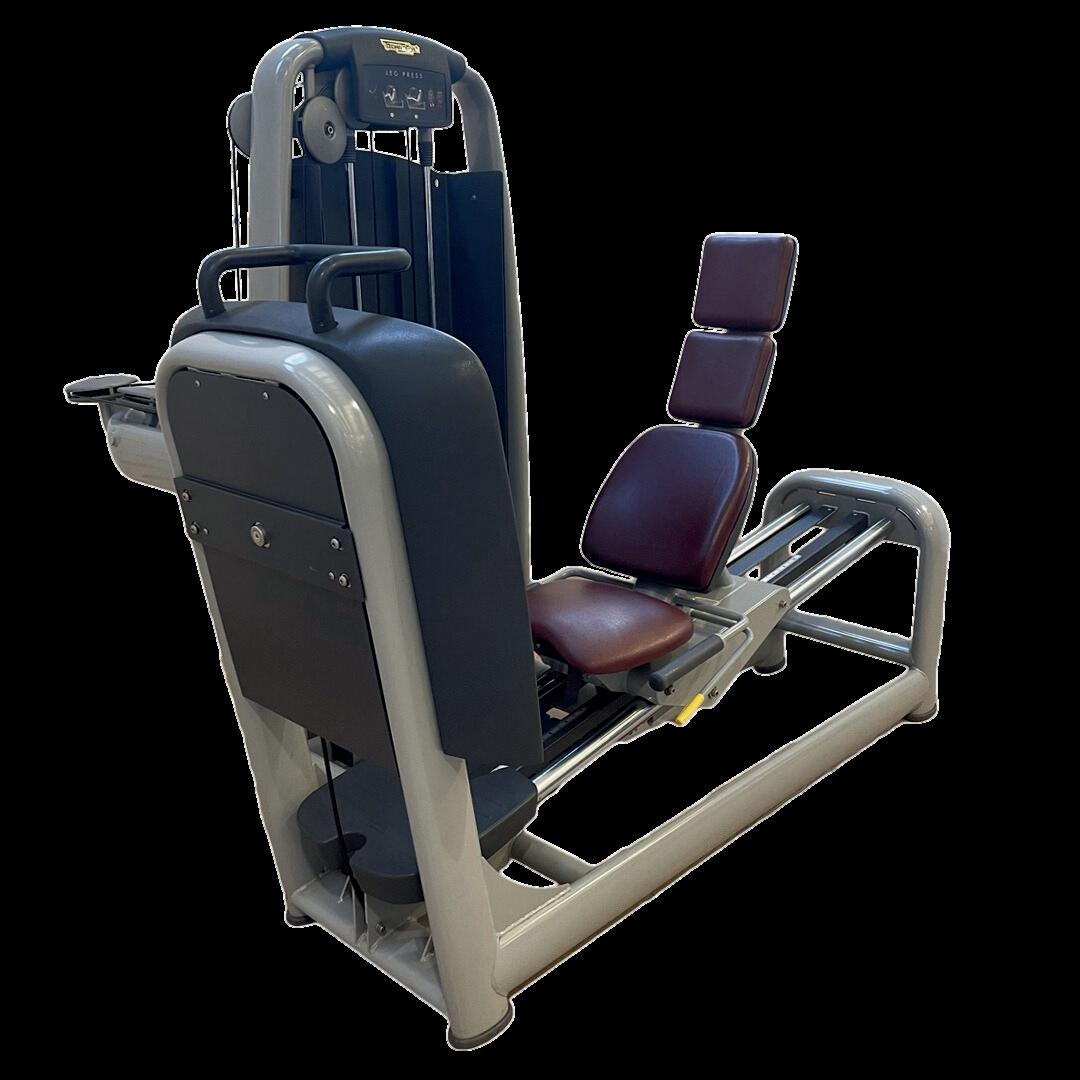
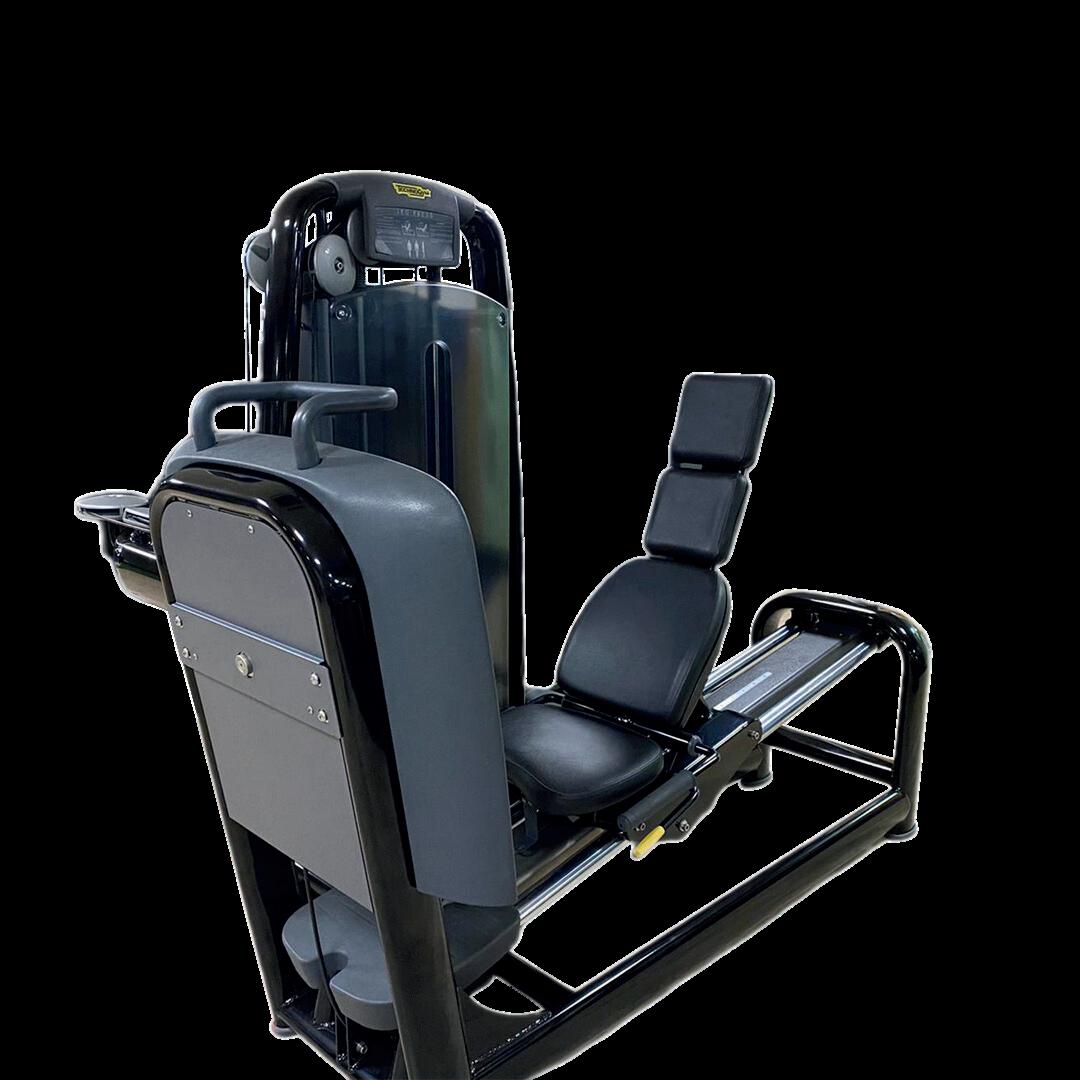
























Welcome to the VirtualRoadshow.App… Welcome to the future of fitness education.












Have you ever gone to a conference and seen a great presentation and gone back to your Club and tried to describe what you learned to your staff, and something seemed to be missing in your description?








Well, with the VirtualRoadShow.APP you can literally show them, pause and discuss, rewind, fast forward. Stop… and then it’s there to be viewed again and again for a refresh, or new hires.



You’ve literally got a 24-hour Conference in the palm of your hand…







Scan the QR code, register online in the Virtual Store at www.VirtualRoadShow.online, download the .APP, log in and start your £1 Try All today.



Every Thursday at noon GMT one of our presenters, trainers or coaches from the world of fitness deliver unrivalled guidance, advice, training and support on building, growing, and scaling your gym business. From leadership, to coaching, to marketing, to sales, and beyond.
✓ Hours and hours of Actual Experience… condensed down into one-app. over one hour.
✓ Designed to help you and your staff learn, how you want, when you want!
✓ Scan the QR code, download the app and start your £1 trial today.
✓ All presentations are archived within the app so as well as a weekly live stream, you and your team will get access to the Virtual Roadshow archive.... A library of limitless advice, guidance and support that builds week on week as content is added...
✓ View them on your phone or tablet 24/7 - 365 days a year.
Pete Cohen Frank Furness Doug Miller Bryan O’Rourke Dr Mark Slavin Justin Tamsett
David Minton Colin Milner Casey Conrad Laurie Metrick Lexie Griffiths Alan Leach
Adrian Marks Dr. Paul Bedford Fred Hoffman Sandy Coffman Hans Muench Herb Lipsman
Dave Stalker Benny Price Joanne Groves Richard Boyd Bobby Cappuccio Michael Scott Scudder
Dan Lynch Jon Nasta Lesley Aitken Ray Gordon Derek Barton Ulf Bengtsso
Peter Webb Cristophe Andanson Henrik Gockel Jarrod Asracco Rob Lander
Our Speakers Bureau have over 1,000+ YEARS of Actual eXperience.
Our Current Alumnus of presenters, educators and trainers in our Speakers Bureau include: Our aim is
Gym-goers want more than towels. Ferne Langford, Strategic Partnerships Director at Zoom Media, calls on fitness operators to rethink rewards, using data and insight to create programmes that truly motivate and retain members
Member retention has been the goal for gyms and leisure centres since day one, but when I look around the sector, it feels like rewarding members (and I mean really rewarding them, not just giving them a free t-shirt or sweat towel) has been overlooked as a tool.
Looking at other sectors, such as hospitality or retail, it’s hard to avoid the feeling that loyalty rewards in the leisure sector are both under-recognised and under-utilised as a route to improve member retention. Yes, they exist, but it’s clear they’re not a priority.
Our own research at Zoom Media demonstrates the value gym members put on a great rewards programme, with 1 in 5 saying their membership at a gym is influenced by incentives and rewards – retention is about the incremental gains, increasing the perceived value for at least 20% of your members is nothing to be sniffed at.
We recently released a white paper, titled ‘Fit for Loyalty’, investigating what a best-in-


Looking at other sectors, such as hospitality or retail, it’s hard to avoid the feeling that loyalty rewards in the leisure sector are both under-recognised and under-utilised as a route to improve member retention
class loyalty platform might look like, and the reality is rewards don’t need to be operationally complicated to be successful, but they should be engaging and have an authentic monetary value.
Zoom’s own research has shown that members have a preference for higher value discounts they need to work towards over time versus smaller, more regular discounts – but also find free products on site, such as coffee, shakes or protein bars to be incredibly valuable. To me, this indicates that a mix of higher-ticket rewards over time, combined with smaller, more regular free products may well be the best route to create that sense of value.
Beyond just creating value, another of the major hurdles identified in ‘Fit for Loyalty’ is operators missing opportunities for personalisation – the leisure sector has a mountain of data thanks to its unique position and access to rich audience data. Operators should be able to get deep understanding of their clientele, and ensure they can reward individuals in an effective way, but the truth is it’s simply not being maximised currently.
I’d urge all operators to take a look at the rewards in other sectors and compare it to what’s on offer across the leisure sector – it’s time to get moving and level up the leisure industry’s rewards.
A project to build a new leisure centre for Halifax town centre has taken a major step forward, as Calderdale Council has appointed a contractor to focus on the final designs, costings and programme ahead of construction.
According to the council, the project has been refined to ensure it will be financially sustainable and delivers facilities which are accessible, support health and wellbeing, boost the local economy and contribute to Calderdale’s Climate Action Plan.
Following a tender process, Tilbury Douglas Construction has been appointed as a contractor to deliver the detailed designs for the project.
The new centre will include a six-lane, main swimming pool with spectator seating, a learner pool, a refurbished eight-court sports hall, a 120-station fitness suite, three multi-functional studios, a dedicated cycling studio, a children’s soft play and adventure area and a café and community area.
There will also be wellbeing spaces, where health and community partners

can locate their services creating closer integration between health, leisure and active wellbeing.
In addition, a wet changing village and a Changing Places facility will be created for disabled people, alongisde separate dry change facilities for sports hall and gym use.
The facility will feature a wide range of energy-efficient, sustainable features, contributing to Calderdale’s Climate Action Plan and the borough’s target for net-zero carbon emissions by 2038. These include air source heat pumps to provide energy-efficient, low-carbon heat.
Bolsover District Council’s Wellness Hub is estimated to be generating more than £760,000 in social value in one of England’s most deprived districts. The Wellness Hub at The Arc in Clowne, launched in 2021 with over £120,000 of COVID-19 recovery funding.
Located in Bolsover, Derbyshire, where life expectancy levels are well below the national average and which has significant rates of chronic health conditions, the Hub supports local residents to improve their physical health, combat social isolation and mental health issues.
The facility is equipped with Innerva’s full circuit of specialist power-assisted exercise equipment offering an accessible entry point to physical activity for those with limited mobility, complex health conditions or even just anxiety around using traditional gyms.
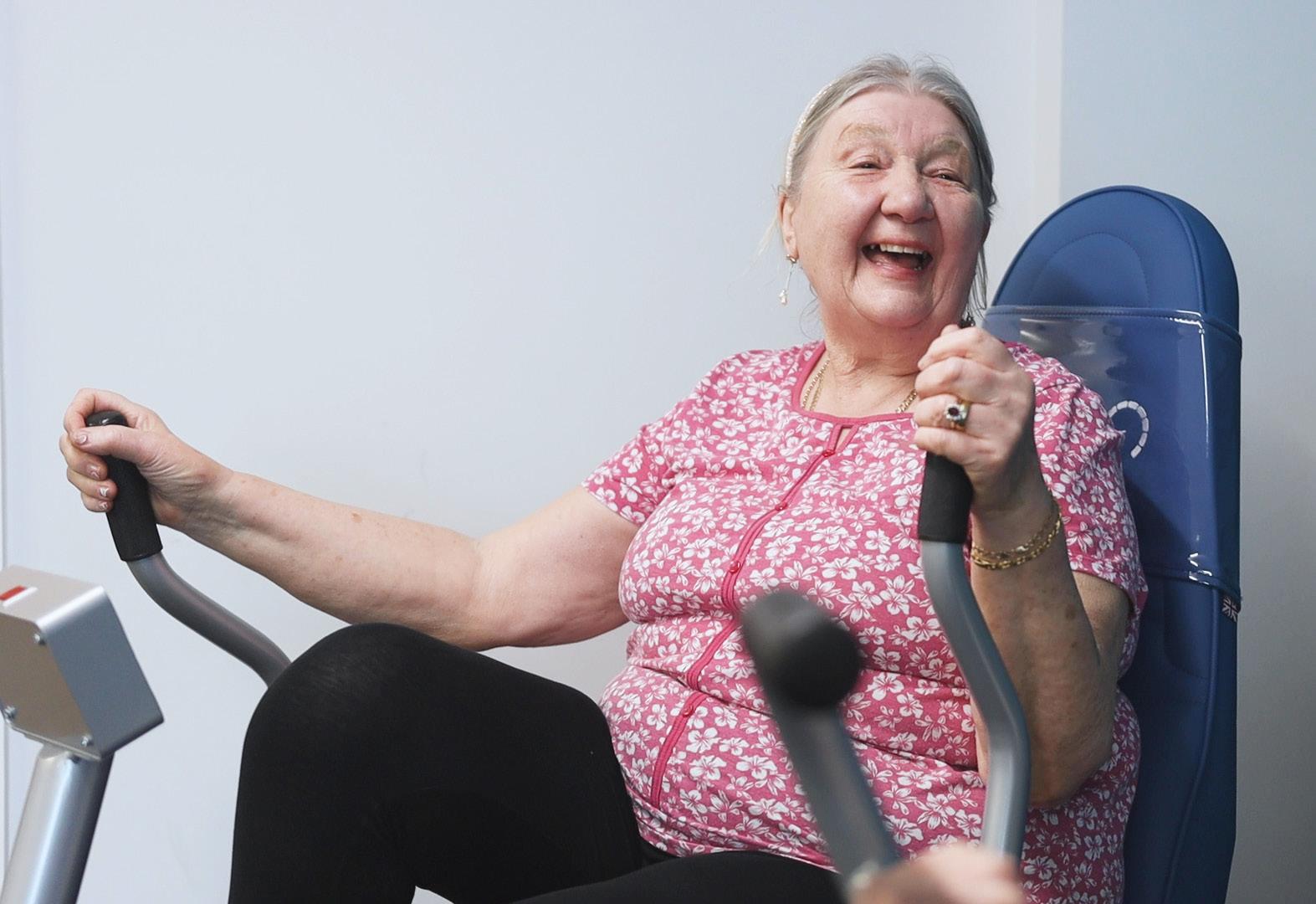



Sobell Leisure Centre in Islington, London, has opened its doors to the public following a comprehensive redevelopment.
The centre was hit by flooding in August 2022, which led to the temporary closure of the site and the entire ground floor being condemned.
When setting about to refurbish the site, Islington Council, which owns the facility, used the closure as an opportunity to hold a public consultation and engage directly with people that are typically underrepresented in sports – such as women and girls, low-income families, disabled people, Black, Asian, and minority ethnic communities, and older adults. The exercise was undertaken to understand how the centre could be rebuilt in a way to make it more accessible and appealing to all.
As a result, the council and GLL – the charitable enterprise that operates Sobell on the council’s behalf – reimagined the centre and have added a number of new activities and facilities.

These include a new Active MultiZone area – an interactive space for older children and adults, featuring a “Zip Zone” zip line running over a new “Strike Zone” obstacle course for adults, as well as an “Inflatable Zone” and “Trampoline Zone”, boasting giant slides and activities for all ages.
Meanwhile, the refurbished sports hall now caters for new sports –including handball and netball – and the centre also provides a more inclusive programme of sports and activities, including more activities for over-50s, disabled basketball, social pickleball and gymnastics.
Refurbished fitness kit and gym maintenance specialist, PSLT, has secured a renewal of its nationwide contract with Places Leisure.
The deal will see PSLT continue to provide a service package to 90 leisure centres operated by Places Leisure.
In addition to the renewal of the standard service contract, Places Leisure has assigned to PSLT the maintenance contract of 1,100 Stages indoor bikes it has across its estate.
Sarah Roberts, Head of Fitness at Places Leisure, said the renewal builds on a successful five-year partnership between the two companies.
“PSLT understands our challenges and needs and is always available to go the extra mile, including supporting additional requests and our involvement in community projects,” Roberts said.
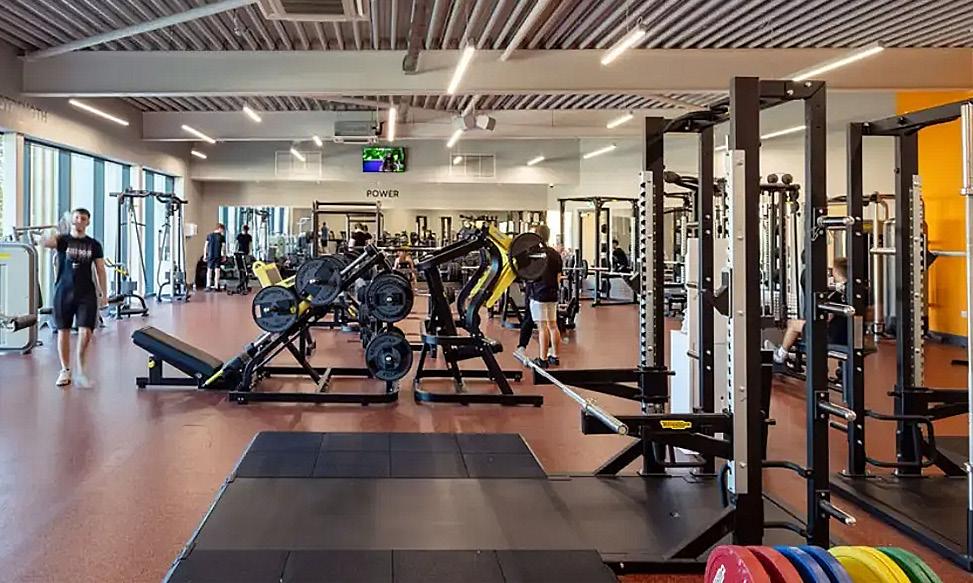


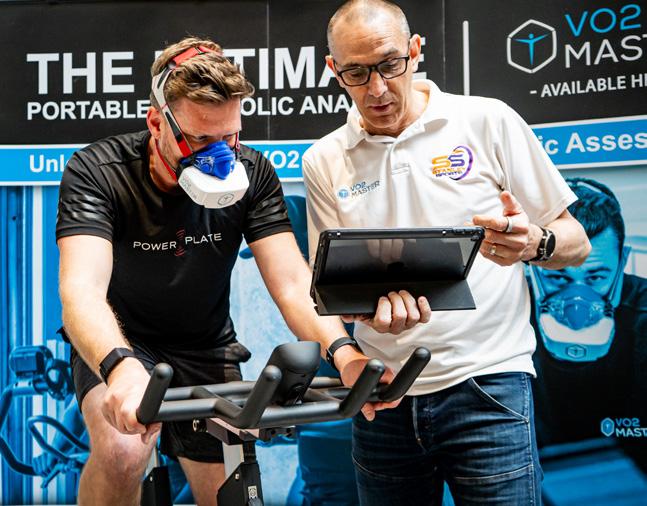
Fitness consumers are increasingly looking for holistic results
Biohacking is rapidly becoming the new buzzword in fitness. The term refers to the strategic use of science, technology and lifestyle changes to optimise human performance and longevity.
For fitness and wellness providers, the consumer shift is clear: people want more than a workout. They want holistic results they can measure and feel: better sleep, more energy, reduced inflammation, and improved cognitive function. Biohacking offers a gateway to all of this.
Biohacking takes many forms, from red light therapy for healing and inflammation to cold exposure to stimulate resilience, or fasting to improve cellular health. Tools like VO₂ max testing help track indicators –VO₂ max is one of the strongest predictors of overall health.
Steve Powell, Director of Training and Education, Performance Health Systems, said: “Another powerful biohacking tool is Whole Body Vibration. Often overlooked, platforms like Power Plate increase muscle activation, boost circulation, reduce inflammation and improve VO₂ max. Paired with the new Power Plate REV, which combines vibration with cycling, trials show accelerated results in cardiorespiratory fitness.”

Milton Keynes City Council is preparing to agree a new long-term contract for three of its facilities, which would secure their future and also encourage major investment.
Under the proposals, the new contract for the management of Bletchley Leisure Centre, Woughton Leisure Centre and Windmill Hill Golf Centre would last for 10 years, with the option to extend for another five.
The longer-term, 15-year model is aimed at giving potential operators greater confidence to invest in the sites, improve facilities and deliver high-quality services.
Currently, Bletchley Leisure Centre is under a short 16-month lease, while Woughton Leisure Centre and Windmill Hill Golf Centre are managed under a service agreement. The new contract would bring all three sites under one updated agreement.
A decision to approve the process is set for June, with procurement beginning at a later date.
Councillor Mick Legg, Cabinet Member responsible for sport and leisure, said: “We want to make sure local people have access to well-run, modern leisure facilities now and in the future. Sports and leisure have faced significant challenges due to COVID-19 – by bringing the three facilities together, we can provide greater stability for both communities and operators.
“The new contract model is about securing investment and ensuring these cherished sites are around for a very long time. It will also strengthen engagement with local people, boost usage, and place the centres at the heart of these communities – promoting health and wellbeing across all age groups. Whether it’s for swimming, sport or socialising, these centres are a vital part of our communities and I’m glad we’re taking this step which will bring major investment to enhance and protect them.”
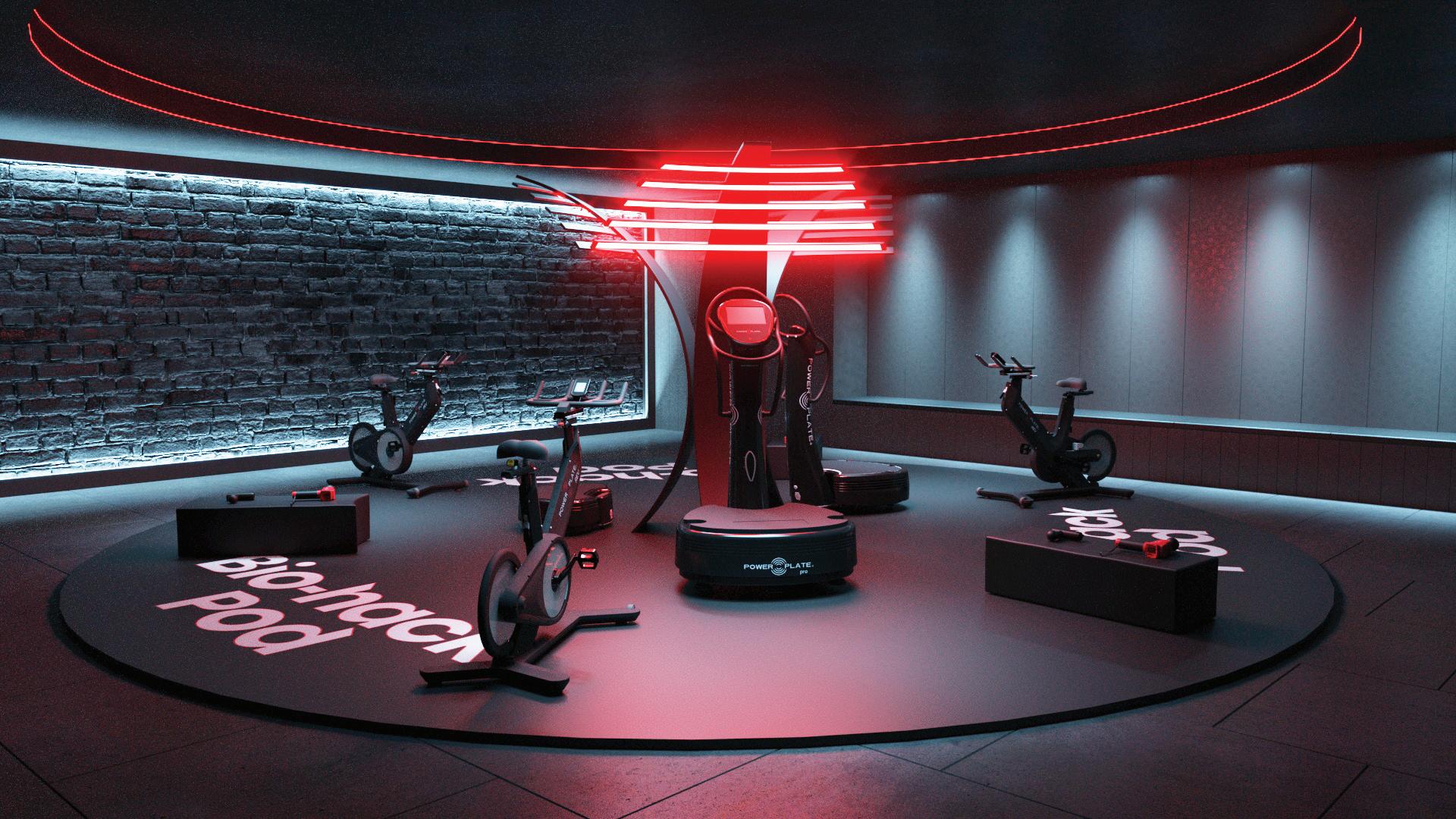
Tendring District Council (TDC) has secured a £1.2million grant to improve the energy-efficiency and sustainability of Clacton Leisure Centre.
The grant, from the government’s Public Sector Decarbonisation Scheme (PSDS), will see the centre’s ageing oil-fired boilers being replaced by a modern, energy-efficient system.
PSDS is run by the Department for Energy Security and Net Zero and delivered by Salix to support the public sector to reduce carbon emissions in line with the UK’s 2050 net zero target.
The new boiler system will include a large heat pump designed to provide efficient heating to the air handling units and hot water systems, while new solar photovoltaic (PV) panels will be installed to further reduce the facility’s carbon footprint and energy consumption.
Councillor Adrian Smith, TDC’s Cabinet Member for Environment, said the switch from the dated oil boilers to a modern electric system, alongside the installation of solar panels, will
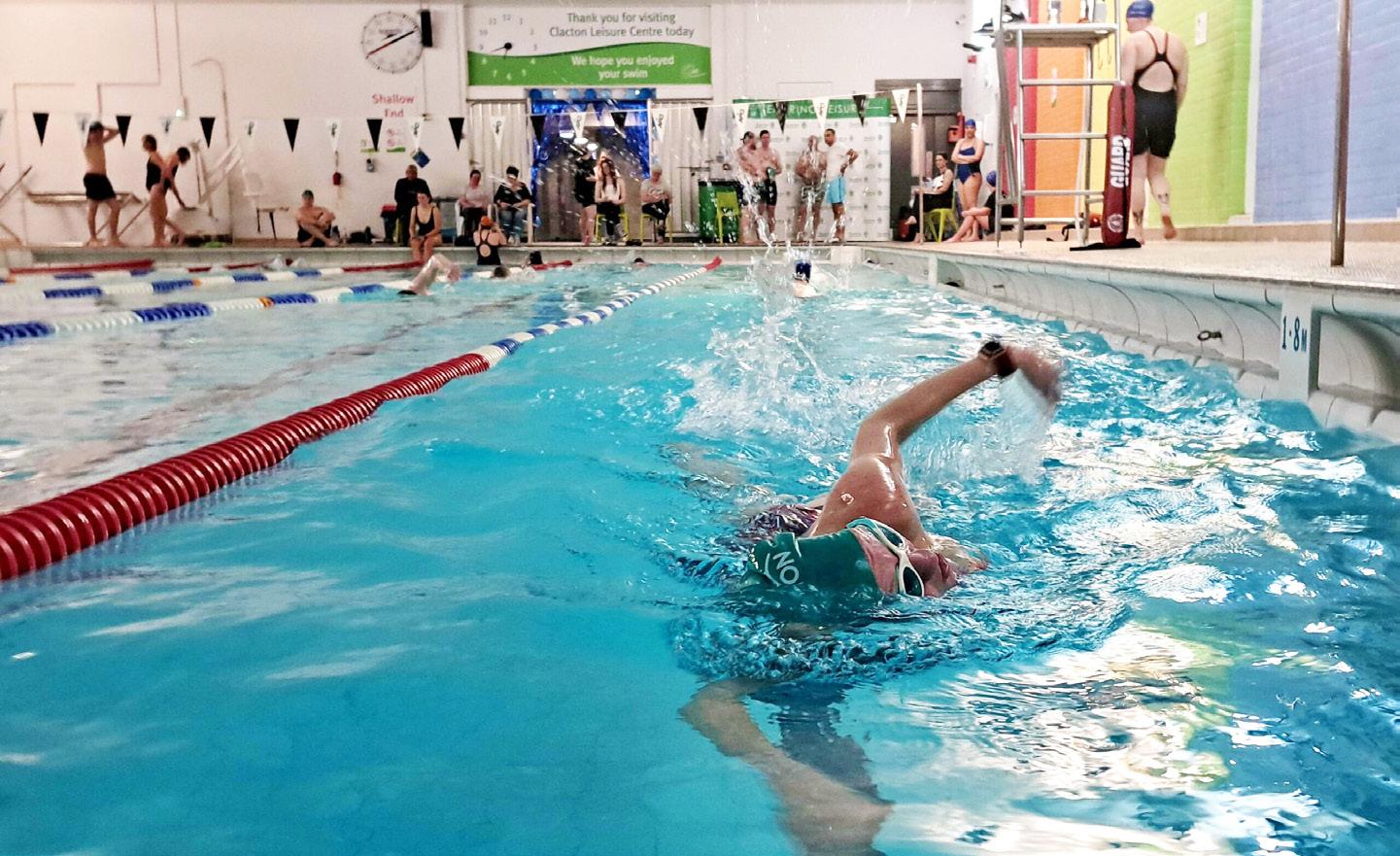
The centre and its swimming pool will receive a sustainability upgrade
lead to massive cut in energy use.
“Not only will there be a huge reduction in energy consumption at the centre, but it is expected to save local taxpayers’ money.” he said.
“Championing the environment runs through everything we do as a council and this project
marks a major step forward in our journey towards Net Zero.
“I would like to thank Salix and the Department for Energy Security and Net Zero for this commitment, which will contribute towards the UK-wide efforts to combat climate change and promote sustainability.”
A £16m project to redevelop Wanstead Leisure Centre is now in its final phase and is on track for completion in late 2025.
The existing building – owned by Redbridge Council – is being extended to house a new 25-metre swimming pool, dance studios, a modern reception area, classrooms for Wanstead High School students and accessible changing rooms.
The Leader of Redbridge Council, Kam Rai, said: “Few, if any, local authorities are currently investing in leisure facilities, building swimming pools, and creating new classrooms.
Brand new classrooms, including specialist art studios, are being built on the site as we speak.”
The new facilities will complement the existing Leisure Centre, which has a fully equipped gym, various fitness classes and squash courts.



Your guide to achieving the perfect ice bath installation for your unique facility
Installing an ice bath comes with a number of key considerations. WellNation spoke with Colin Edgar, Managing Director of CET, who has been at the forefront of low temperature therapy since 2002. CET has installed thousands of CryoSpa ice baths in more than 50 countries around the world to clients including AC Milan, Arsenal FC, Wimbledon Tennis, Third Space, Wembley Stadium and the Alliance Arena. Colin shares his essential advice for ice bath installation success.
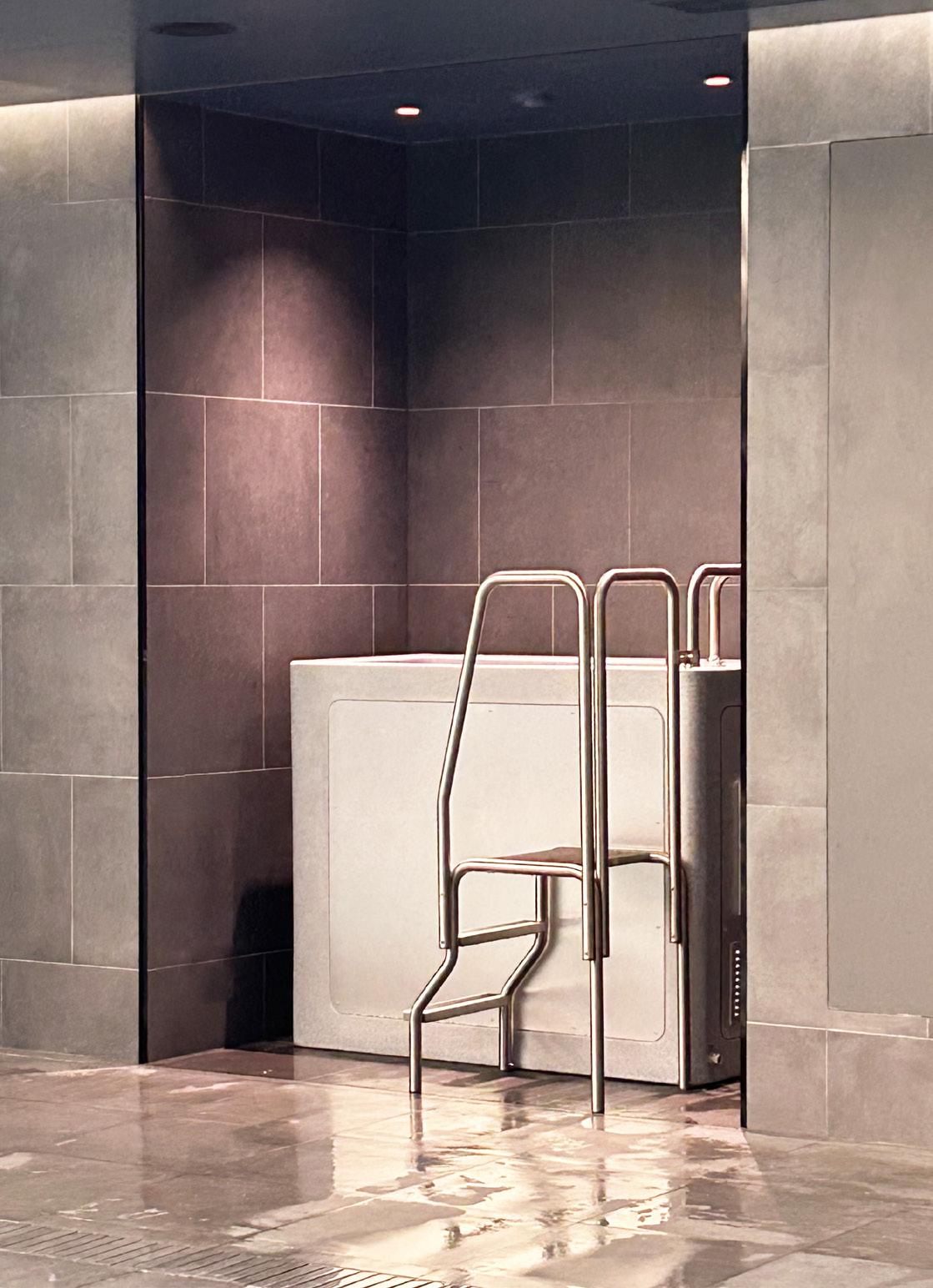
Ice
baths
come
in many
shapes and
sizes but to create a proper, therapeutic effect, you need these key elements – otherwise you might as well just fill a bath with cold water!
The greater the water depth the greater the pressure exerted on the body. A depth of 1m is roughly equivalent to wearing a compression garment and aids the dispersal of accumulated fluids. CET Ice Baths are the deepest on the market, available up to 1.2m deep.
Salt has a positive impact on the healing process: higher salt concentrations will draw away more of the fluids that accumulate around an injury. Saltwater has been found to allow injuries to heal more quickly while inhibiting the risk of infection. Not all ice baths can accommodate salt water so this is an important question to ask your supplier.
Jets make a huge difference to the ice bath experience. They create a penetrating cold which gets deeper into the muscles and increases the therapeutic effect. As an added bonus they also control the ‘feel’ of the water temperature. In trials, users reported that a CET Ice Bath at 8 degrees with jets running, felt cooler than an ice bath chilled to zero with no jets.
Health and safety regulations for ice baths were recently updated. Your ice bath should have proper filtration and sanitisation and be HSG282 compliant. The water must be skimmed from the surface as
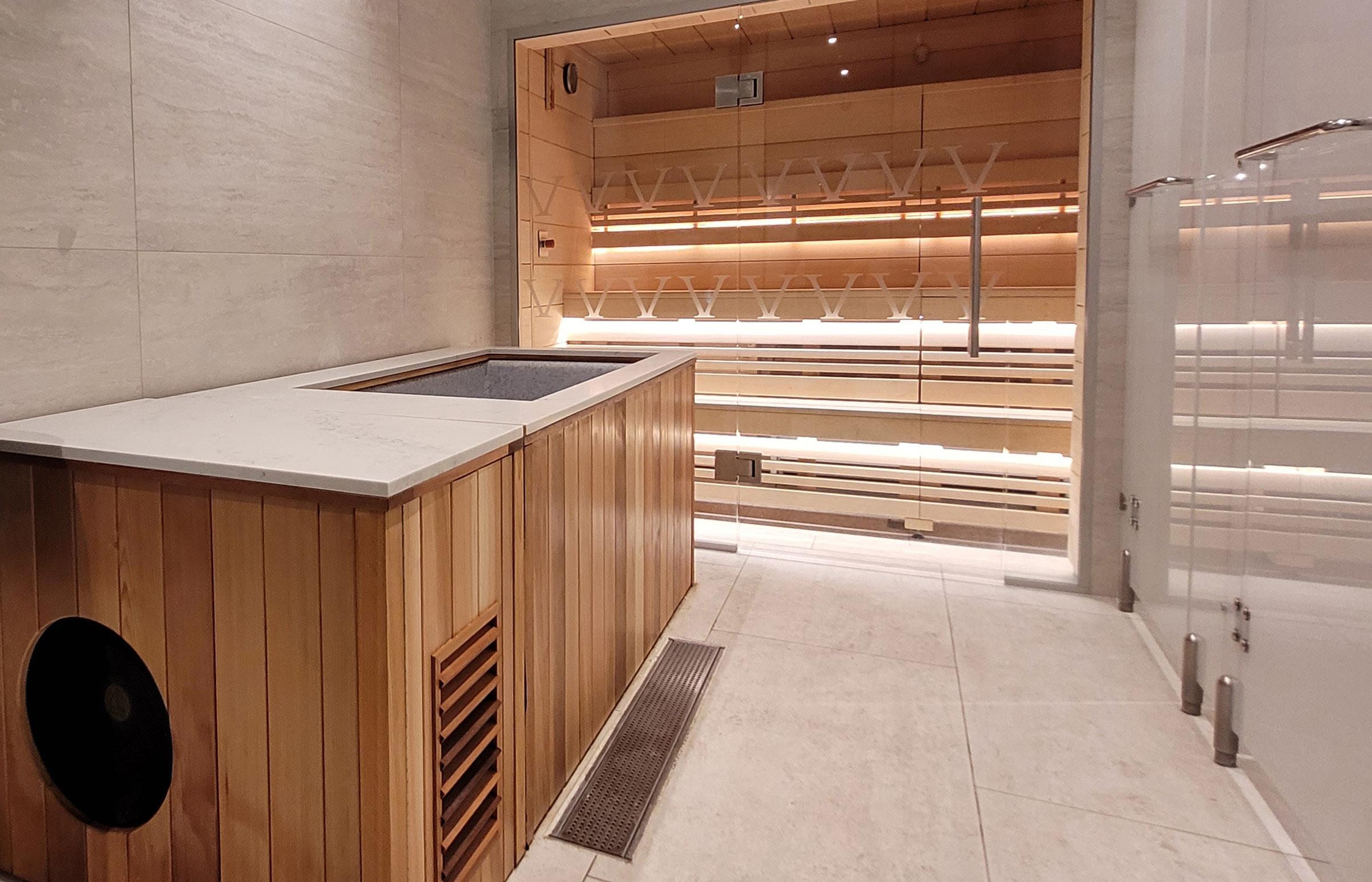
60% of pollutants will float. The primary sanitisers should be chlorine or bromine, which are fast acting. The gold standard – which you will always find with CET Ice baths - is a 50sq ft skim filter and optional sand filtration combined with optional UV and auto-chemical dosing. This delivers an excellent hygiene rating, meaning our baths are the cleanest on the market and can facilitate the highest daily bather loads.
Aesthetics over function
Aesthetics is often the first thing people look at but these can be easily altered, perhaps by cladding the bath in a different material, or adding a different kind of finish to the top. It’s more is important to look underneath the skin of the ice bath to ensure it can cope with the demands of your facility, from filtration capabilities to bather load.
Installing the ice bath in an inappropriate location
Operators often under estimate the amount of heat that is produced when running an ice bath, as well as the amount of ventilation that’s required. If your ice bath and chiller are in an warm environment, such as on poolside, your chiller may have to be on all the time,
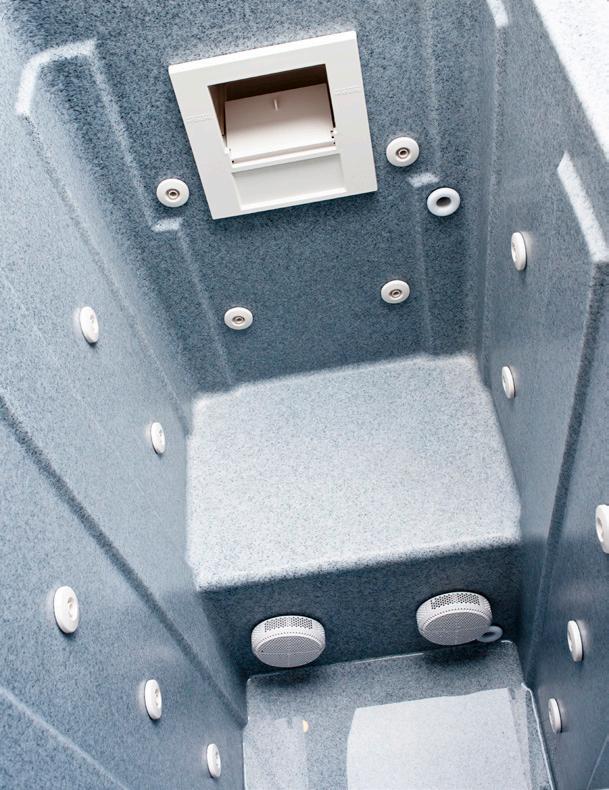
and may struggle to reach it’s target temperature. Having your chiller built-in is not a good idea, we recommend locating it separately to your ice bath in a cool and dry area with plenty of ventilation.
the number of people who will use the ice bath
Gyms often underestimate how popular an ice bath will be. A popular gym in central London has one ice bath and 200 people a day wanting to use it. The implication is having to change the water during the day and then close it for several hours to chill it down to temperature. Whilst high quality filtration will mean fewer water changes, considering your daily bather load at the outset will save you headaches in the long run.
● www.cetcryospas.com
WeightWatchers has filed for bankruptcy in the US after struggling to find a way to combat the rocketing popularity of weight-loss drugs.
In a statement, the company said it was taking “strategic action” to eliminate a mountain of debt, which has now reached US$1.15bn (£1.13bn).
The company said it had struck a deal with the holders of approximately 72% of the outstanding principal amount of the Company’s term loan facility, revolving credit facility and 4.5% senior secured notes. As part of the agreement, WeightWatchers has voluntarily initiated “prepackaged” chapter 11 cases in the United States Bankruptcy Court. In its latest financial report, covering the first three months (Q1) of 2025, the company said revenues had fallen by 9.7% compared to Q1 2024. Despite filing for bankruptcy, the company said it remained “fully operational”.
Tara Comonte, CEO, said: “For more than 62 years, WeightWatchers has empowered millions of members to

make informed, healthy choices, staying resilient as trends have come and gone.
“The decisive actions we’re taking today, with the overwhelming support of our lenders and noteholders, will give us the flexibility to accelerate innovation, reinvest in our members, and lead
with authority in a rapidly evolving weight management landscape.
“As the conversation around weight shifts toward long-term health, our commitment to delivering the most trusted, science-backed, and holistic solutions has never been stronger, or more important.”
NordicTrack, an iFIT brand and a global leader in connected fitness, has unveiled the Ultra 1 treadmill to the UK market. Described as a “blend of innovation, performance, and design”, the launch marks the brand’s 50th anniversary.
Designed for premium fitness spaces and high-end residences, the Ultra 1 features a V-shaped frame, brushed metal accents and natural wood finishes. Aviation-style throttles, full-body cooling fans and deluxe surround speakers elevate the user experience.
A key highlight is the Ultra 1’s two-part design. The running deck is decoupled from the control hub, designed to enhance stability and ensure the screen stays still, even at peak speeds.
Ultra 1 will be introduced to the UK fitness market at this year’s Elevate 2025 trade show.
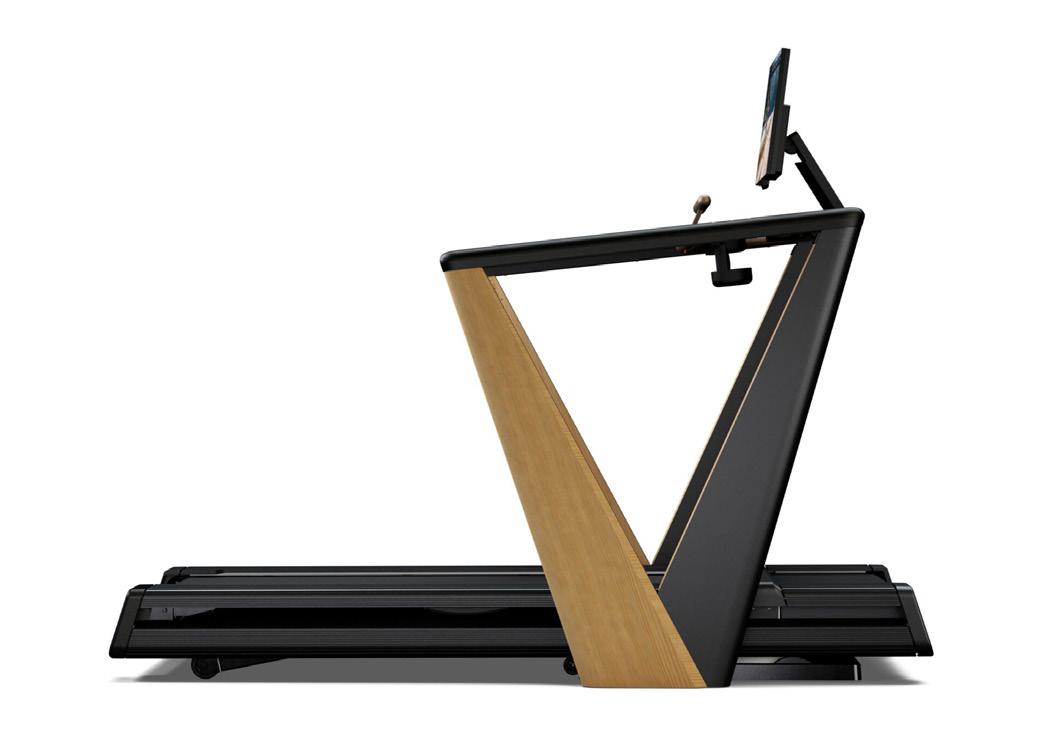











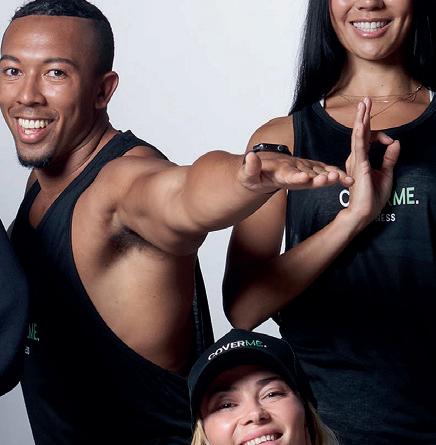
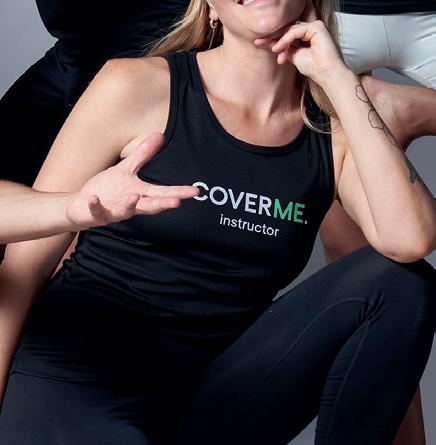






















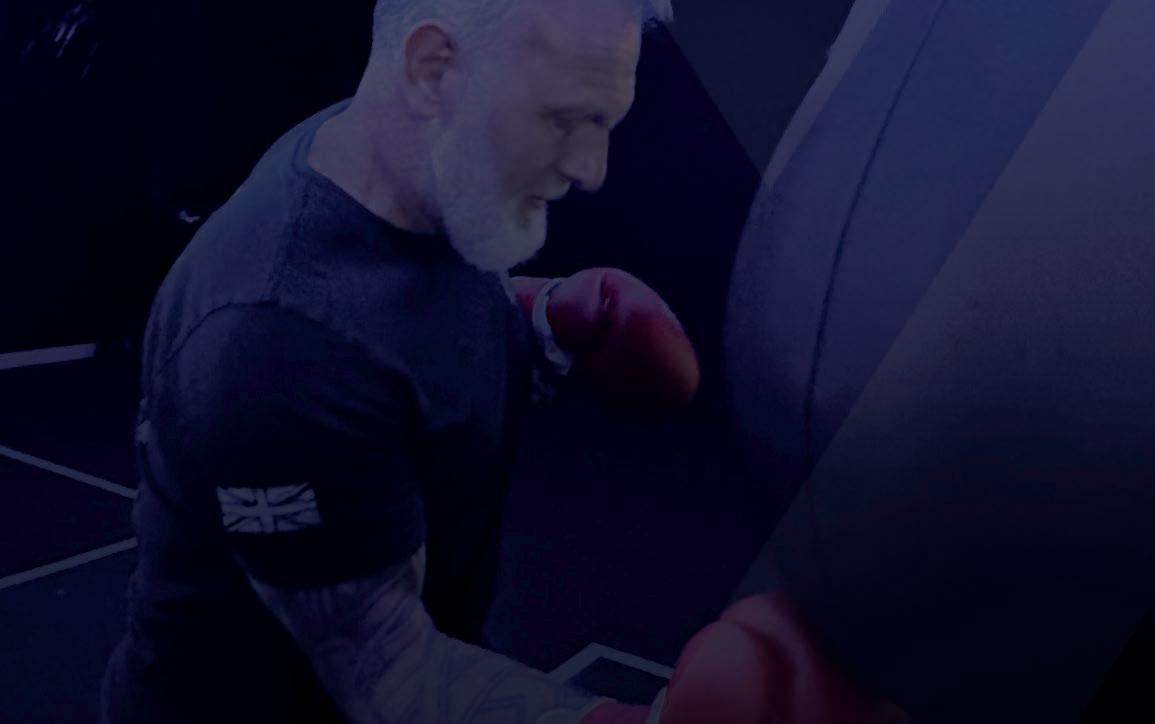








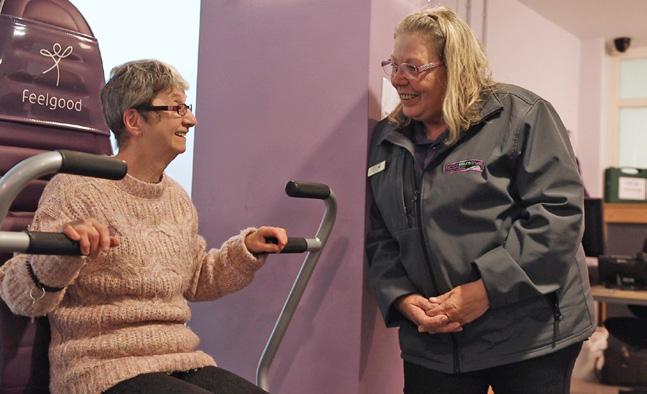
Pendle Leisure Centre’s Feelgood Suite has undergone a significant transformation. As well as more than doubling membership and significantly boosting revenue, the suite has become an inclusive space for people of all ages and abilities to improve their physical health and mental wellbeing, and to connect socially.
Shaun Grant was given six months to reverse the fortunes of the underused facility when he was appointed centre manager. He immediately took steps to broaden its appeal by opening up the then women-only facility to men, while still offering women-only sessions each morning to meet local cultural needs.
Offering 12 pieces of Innerva’s specialist equipment, the Feelgood Suite now serves people recovering from strokes, living with cardiac conditions and managing mobility, balance and coordination issues. The average age of members ranges from 60 to 70.
“These are people who can’t typically access mainstream gyms. Without the Feelgood Suite, they’d be stuck at home, which could lead to declining health and increased pressure on the NHS,” says Grant.
Feelgood Suite membership has now grown to more than 230 individuals and income has more than doubled, delivering a 66% return on investment.

Active IQ has launched a webinar series to educate the physical activity industry on the use of GLP-1 in weight loss programmes. The awarding organisation is working in partnership with medical wellness clinic Bodyline on the webinars.
The collaborative webinar series will feature a panel of experts, including Bodyline’s Medical Lead Dr Morgan Toerien, Active IQ MD Jenny Patrickson, Bodyline Founder and MD Sally Ann Turner and guest speakers Dr. Dane Vishnubala and Dr. Lou Atkinson.
According to Sally Ann Turner, Founder & MD of Bodyline Clinics, fundamental to the webinars will be the opportunity for the industry to offer input and feedback, ensuring they have a say in the future of any new AIQ qualifications in the GLP-1 space.
“The integration of GLP-1 medications with behavioural and lifestyle interventions presents a groundbreaking shift in how we approach weight health,” Turner said.
“Through these webinars, we aim to bridge the gap between medical science and the fitness industry, ensuring a safe, effective, and holistic approach to weight management and overall health.”
All three webinars will tackle different aspects of GLP-1 and are free to join.
Active IQ MD, Jenny Patrickson, said: “We are acutely aware that our industry requires knowledge and access to information in the weight loss medication space and are focusing our efforts on collaborative development and awareness raising CPD, rather than fast tracking a qualification.
“Any product we develop must adhere to our gold standard, and industry leading, frameworks and to achieve this for a GLP-1 qualification we need some more time to develop with partners across the space.
“This is an excellent opportunity to see professionals across the industry come together and ensure our products are developed with first hand feedback.”
CIMSPA Conference 2025
Stay up-to-date on the crucial work happening across the sector to help improve the health and wellbeing of the nation.
Wednesday 24 September 2025
King Power Stadium, Leicester
Scan to book your tickets
UK BUILT CORE GYM STRENGTH EQUIPMENT, REMANUFACTURED KIT AND CUSTOMISATION OPTIONS.

NATIONWIDE COVERAGE, FULL SERVICE CONTRACTS TO ONE OFF VISITS. FROM ELECTRICAL, UPHOLSTERY, REPAIRS AND GENERAL ASSET MANAGEMENT.
RELOCATION AND REMOVAL OF PART OR FULL FACILITY. TRADE IN ANY FITNESS KIT.

Bobby Griffiths General Manager UK Spa Association
As the UK hospitality market continues to navigate a complex array of challenges, most notably, mounting economic pressures and ever evolving guest expectations, the significant growth of wellness tourism continues, meaning it is essential for spas to adapt strategically to remain both competitive and yet profitable. There are a few challenges for wellness operators, though.
Labour shortages and rising costs
Staffing remains a critical issue. According to recent figures, the UK hospitality sector is grappling with approximately 132,000 vacancies—48% above prepandemic levels—with 84% of businesses reporting front-of-house shortages. Compounding this, recent increases to employers’ National Insurance contributions in this year’s annual budget have had a huge knock on effect to businesses, regardless of size, inflating payroll expenses and causing many to re-think their entire head-count.
Economic pressures and operational costs
Despite a 0.7% GDP growth in Q1 2025,(the fastest in a year), economists have suggested caution and that this surge may not be sustainable. The International Monetary Fund (IMF) projects the UK’s GDP growth is likely to slow to 1.1% for the year, down from an earlier forecast of 1.6%. Put into real terms, the economy is causing a squeeze on margins, making it challenging for hotel spas to maintain profitability without compromising service quality.
Evolving guest expectations
Today’s travelers prize and prioritise spa and wellness experiences. A report by PoB Hotels indicates that 87% of respondents emphasise overall wellbeing when booking UK hotel stays, with 33% expressing interest in spa breaks and 18% in wellness retreats. Guests are seeking personalized treatments, sustainable product lines, and mental wellness

UK hotel spas must leverage tech, personalise wellness and support staff to thrive amid rising costs and soaring guest expectations
offerings like meditation and sound therapy. Hilton’s data shows spa searches up 82% from the previous year, highlighting the growing demand for wellnessfocused amenities which is hugely encouraging.
Increased competition
The wellness sector in the UK generated £224 billion in 2022, attracting a new wave of fresh and diverse players into the market. Hotel spas now compete not only with smaller, boutique day spas but also with wellness retreats, specialist fitness studios, and even at-home wellness apps. To stand out, spas must offer unique, immersive experiences that ignite the imagination of the guest.
Technological integration
Modern guests expect seamless digital experiences. However, many UK hotel spas are still tied to legacy systems, hindering online booking and personalised communication. Investing in technology to streamline appointments, promote upselling, and track guest preferences is essential—but can be costprohibitive for smaller or independent hotels.
So is it all doom and gloom for the UK spa market? Absolutely not, these are challenging but very exciting times of change. UK hotel spas are at a crossroads. The future success of the industry will depend on adaptability, technological investment, and a commitment to staff wellbeing and innovation. By evolving in response to economic and cultural shifts, hotel spas can continue to be a key part of the UK’s hospitality and wellness landscape.


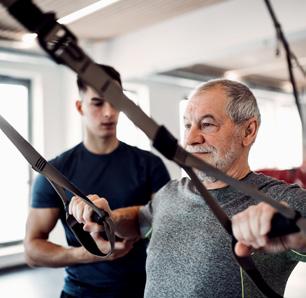

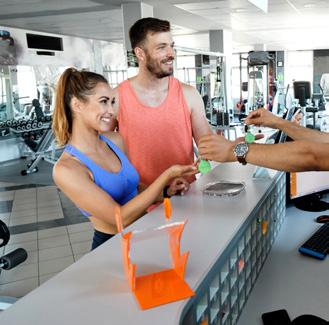



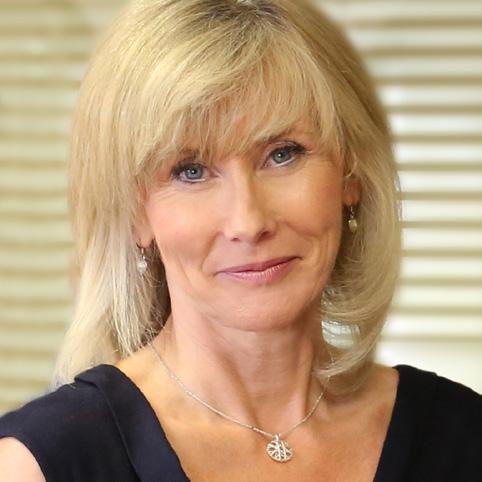
TUnqualified fitness in��uencers are shaping public health behaviours online. Jenny Patrickson, MD of Active IQ, says it’s time for the industry to champion professional voices and raise digital standards to ensure the voices of qualified fitness professionals aren’t drowned out
he fitness industry has always prided itself on its commitment to evidence-based practice and professional standards, but in today’s digital age, that foundation is being challenged and undermined. On social media platforms, unqualified fitness influencers now command audiences on levels that rival national campaigns from major brands. Much of the content shared is aspirational, but there is plenty that is misleading, unregulated and potentially harmful.
While we might have once dismissed this as a marginal concern, it is now clear that misinformation in the fitness space is shaping behaviours and perceptions and, in some cases, damaging both physical and mental health.
At Active IQ, we believe this is a pivotal moment for the industry to reflect and respond. As a leading awarding organisation, we work with thousands of qualified professionals across the sector who operate under strict codes of conduct, undergo rigorous training and are held accountable. Despite these standards, their voices are being drowned out at an alarming rate by influencers whose reach exceeds theirs.
The core issue is not the existence of fitness influencers; making fitness advice and workouts more accessible is something we champion at Active IQ. Data

from our Skills Gap Report shows that 65% of fitness professionals view social media as having a positive impact, highlighting the potential of these platforms when used responsibly. The issue lies in the persuasive and unqualified information delivered to audiences without the resources or knowledge to assess its validity. When the public cannot distinguish between credible, qualified guidance and content designed for trends or clicks, the value of professional expertise quickly decreases. It also increases the risk of unsafe practices being normalised, from extreme dieting and overtraining to unregulated supplements. Alarmingly, our research also found that 65% of fitness professionals have witnessed their peers acting in ways they consider unprofessional or potentially dangerous, underscoring the need for better regulation and accountability.
The industry must work collaboratively to address this challenge, and a key part of this is raising digital
Are fitness influencers drowning out the voices of real fitness professionals?


standards, encouraging platforms to implement greater transparency around fitness credentials. Employers and operators have a vital role to play in championing professional credibility by amplifying the voices of qualified practitioners to ensure regulated information is reaching both their staff and members. It is also essential that we engage constructively with the influencer community. Amidst this surge in misinformation, there are many passionate creators with the good intentions of promoting healthy lifestyles. As an industry, we must ensure there are accessible pathways for them to gain the qualifications needed to share advice responsibly. This is not about hindering innovation or dismissing the positive impact of social media; there is enormous potential in these platforms to support health and wellbeing. But as an industry, we cannot stand by while misinformation chips away at the standards we have spent decades building.
We must ensure the public can tell credible, qualified guidance from click-driven content, or risk normalising unsafe fitness practices


The report was published at the annual EVOLVE event, which attracted more than 200 delegates
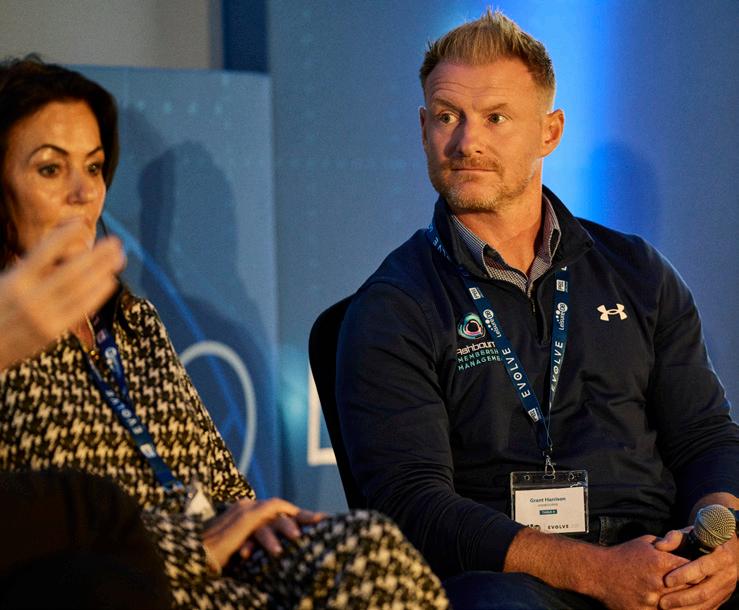
More than 200 industry professionals gathered at London’s Porchester Hall on 5 June for the half-day EVOLVE event. Organised by Leisure DB, the afternoon featured keynotes and panel discussions, but the main number was the publication of the annual State of the UK Fitness Industry Report – which has for years been the benchmark report on the sector.
According to the report, the UK fitness industry saw “strong growth” across all key performance metrics during the year to 31 March 2025. The number of gyms and health clubs in the UK increased by 2.8 per cent to 7,202 – a figure that falls only slightly short of the pre-pandemic high of 7,239 gyms recorded in 2019. The sector also experienced growth in three other key areas, setting new records in membership numbers, market value and penetration. Across the UK, there are now 11.3 million gym members (an increase of 5.4 per cent compared to 2024), which means that 16.6 per cent of the UK population is now a member of a gym (up from 15.9 per cent in 2024). Meanwhile, market value has reached £6.5bn, an increase of 9.3 per cent on 2024.

The latest State of the UK Fitness Industry Report shows that the sector is in a “period of strong growth”. The report was published at Leisure DB’s annual EVOLVE conference in London
According to the report, the overall industry growth is driven by the private sector, which continues to perform strongly, with growth in gym count, member numbers, market value and penetration.
The report estimates the market value of the private sector as £4.91bn, an increase of £423m (or +9.4%) on the year before. There are now 4,727 private health and fitness clubs across the UK, up from 4,513 clubs in 2024 – a rise of +4.7%.
Membership at privately owned clubs reached almost 7.8 million – an increase of 427,000 members (+5.8%) over the course of the 12 months. This is supported by a continued rise in average fee, which now sits at £48.45 –an increase of +2.6% in the 12 months to 31 March 2025, compared to over 5% in the 12 months to 31 March 2024.
Private sector penetration has also reached a new all-time high, up from 10.9% in 2024 to 11.4% in 2025.
In the report, Leisure DB states: “This year’s record doesn’t just reflect recovery. It signals a new era of opportunity for gyms across the country and follows steady growth over the past two years – rising above 10% in 2023 and hitting 10.9% in 2024 – as the sector continues to recover and accelerate beyond its pre-pandemic levels.”
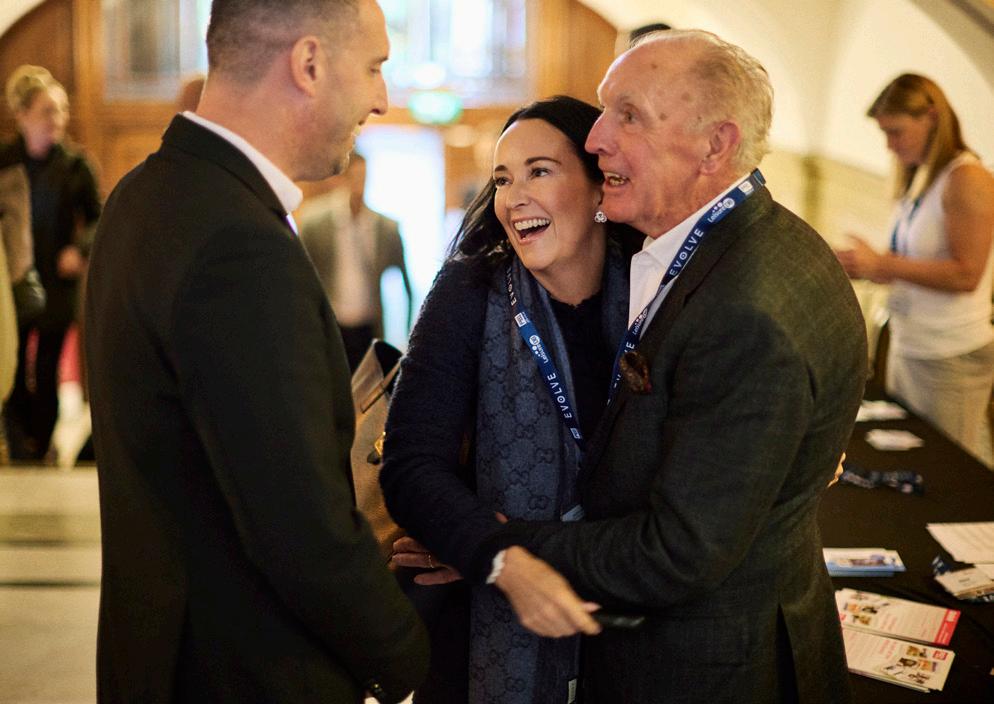



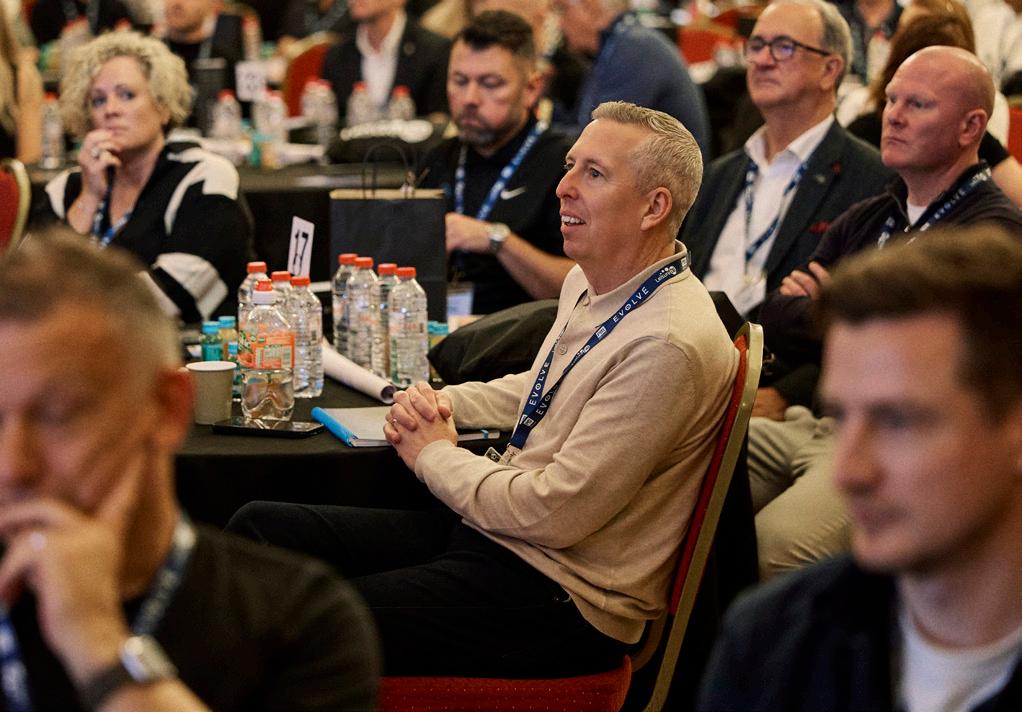



The afternoon event at

featured keynotes and panel discussions
145
CLUBS OPENED
■ 68% top 10 operators
■ 55% low-cost operators
■ 17% independents
■ 342k members
■ £118m market value
139
CLUBS CLOSED
120
CLUBS OPENED
■ 54% top 10 operators
■ 38% low-cost operators
■ 20% independents
■ 276k members
■ £134m market value
■ £64m market value 2025 2024 2023
155
CLUBS OPENED
■ 49% top 10 operators
■ 41% low-cost operators
■ 30% independents
■ 267k members
■ £142m market value
■ 25% top 10 operators
■ 10% low-cost operators
■ 59% independents
■ 134k members
■ £45m market value
129
CLUBS CLOSED
■ 25% top 10 operators
■ 2% low-cost operators
■ 53% independents
■ 128k members
93
CLUBS CLOSED
■ 22% top 10 operators
■ 5% low-cost operators
■ 59% independents
■ 83k members
■ £39m market value
35% of private clubs open 24/7 2%
Want to know where your gym members come from? Why not ask Leisure DB?


The annual EVOLVE has established itself as one of the sector’s key events

PureGym remains the UK’s leading private sector operator by both number of clubs and number of members. With a net gain of 43 clubs in the past year, it now operates 422 clubs nationwide.
The Gym Group follows with 244 clubs, having added 10 new locations over the same period. There are three other private sector operators with more than 100 clubs: Anytime Fitness, Nuffield Health and David Lloyd Clubs.
A further five brands each operate between 50 and 100 sites: Snap Fitness, JD Gyms, The Bannatyne Group, Everlast Gyms and énergie Fitness.
These brands make up the top 10 private sector operators in the UK and between them operate 1,429 clubs – up from 1,365 in 2024 (a net gain of 64). Collectively, these leading brands have added more than 230,000 members over the past 12 months and boosted their combined market value by £315m to reach £2.9bn.
The budget gym sector is still growing strong. Membership in the low-cost segment has now reached 3.2 million – 41% of all private sector members and 4.7% of the total UK population. Average fees in the low-cost sector also rose above £25 for the first time in 2024.
As a result, the market value in the budget segment is also up significantly, from £888m in 2024 to £986m. Leisure DB predicts that, as a result of the ongoing growth, the £1bn market value threshold “should be easily surpassed in 2026”.
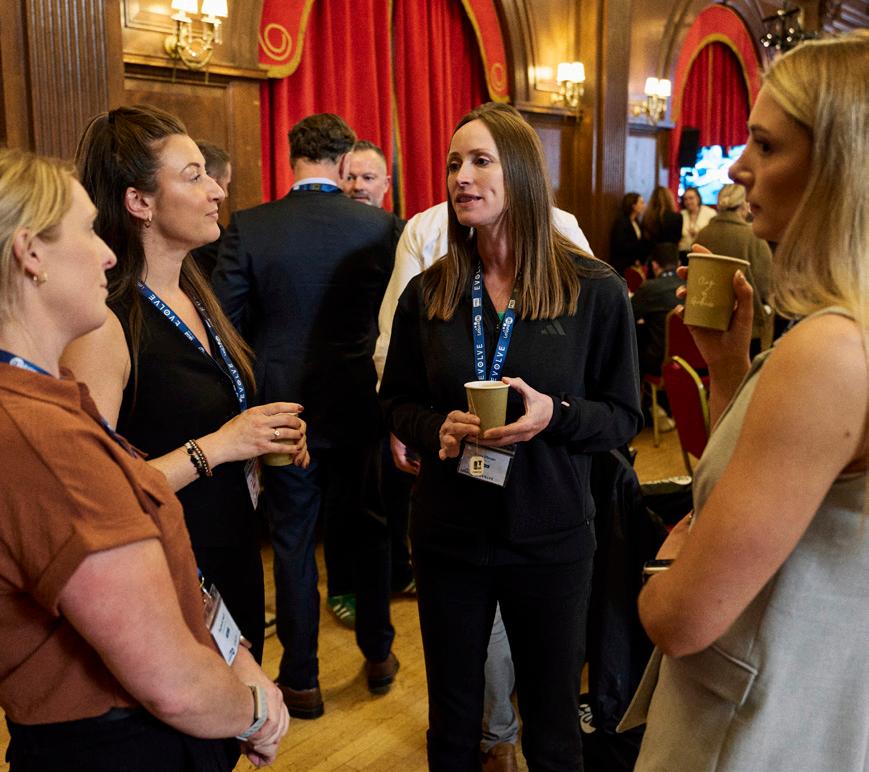
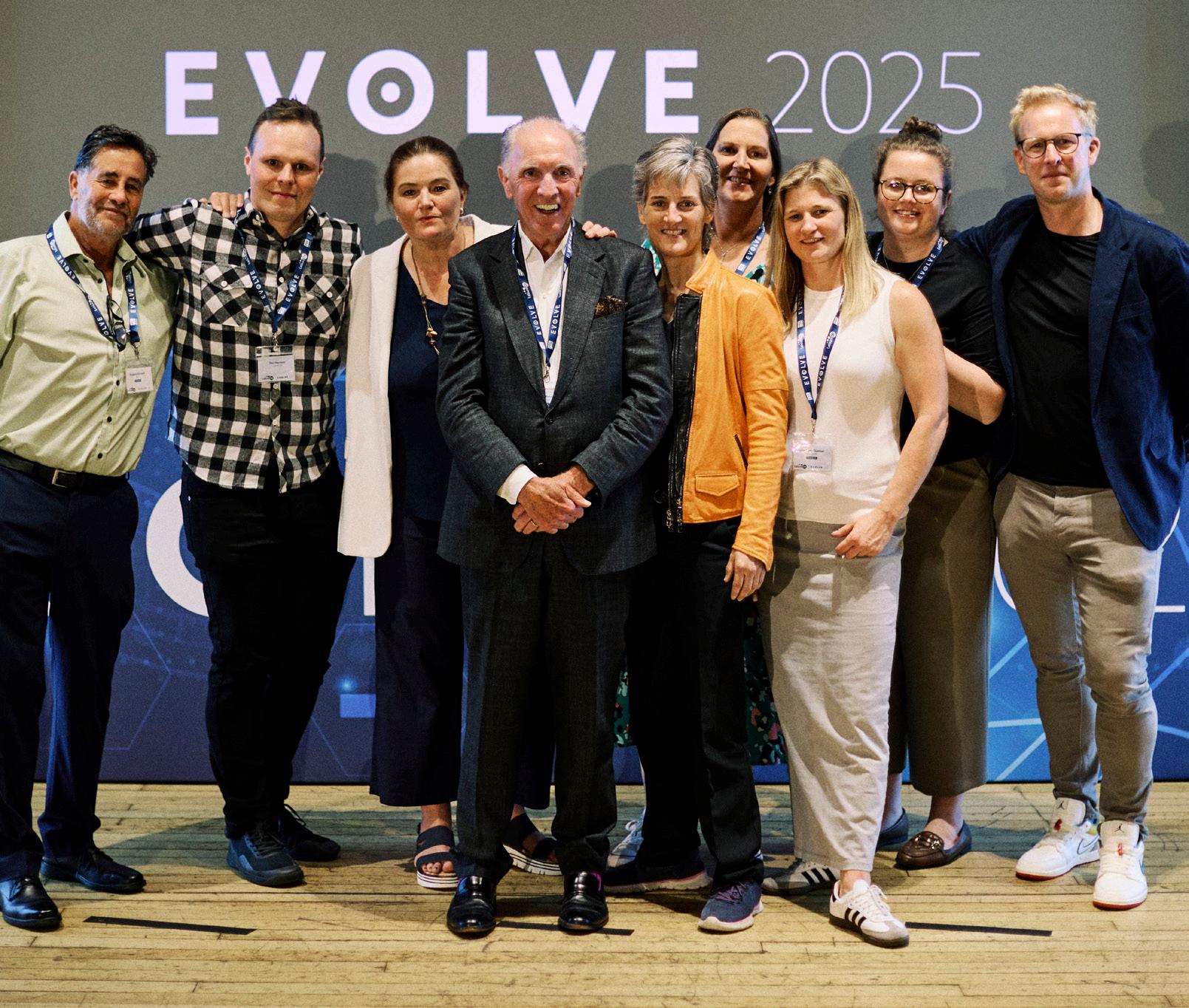

While less pronounced, the public sector has also seen an uptick since the 2024 report. The number of public gyms has declined slightly over the last 12 months, but there has been positive movement across other key metrics, with market value and membership reaching all-time highs. Public sector penetration has also returned to its previous peak of 5.2 per cent, last recorded in 2016.
There are now 2,475 public sector gyms across the UK – down 0.8% from 2,496 in 2024. Despite this drop, member numbers have increased by 4.5%, rising from 3.36 million to 3.51 million. The public sector’s total market value also surpassed the £1.5bn milestone for the first time, reaching £1.56bn – a year-on-year rise of £126m (8.8%).
Meanwhile, public sector penetration climbed to 5.2% in 2025, up from 5% the previous year. This matches the highest rate on record, previously seen between 2014 and 2016, and hints at the possibility of a new all-time high by the next audit.
Of the UK’s 2,475 public sector gyms, 45% are managed by a trust. Regionally, this model is most prominent in Scotland, where 64% of gyms are trust-managed. Wales follows with 47%, England with 42% and Northern Ireland with 21%.
Meanwhile, across the UK, local authority in-house management accounts for 21% of public sector gyms; educational establishments manage 14% of sites; and leisure management contractors (LMCs) operate 9%.
GLL remains the UK’s largest public sector operator by number of sites, with the trust running


191 gyms – down from 195 last year. Everyone Active, the UK’s leading leisure management contractor by number of sites, ranks second with 172 gyms (down three from 2024). No other public sector operators have more than 100 gyms.
Between them, the top 10 public sector operators manage 745 gyms – up slightly from 742 in 2024. Over the 12 months to 31 March 2025, these operators added almost 100,000 members and saw their combined market value rise by £88m.
In the report, Leisure DB states that behind these statistics is a “number of significant changes afoot in the sector”, from the impact of a new agency model
Leisure DB is the leading independent data specialist in the UK leisure sector, providing robust market intelligence and analysis across the full scope of an increasingly diverse industry. In addition to the annual report, Leisure DB provides a number of reports and insight reports. These include the Monthly Market Tracker, which reports changes in the fitness sector as they happen. By combining artificial intelligence, machine learning and human insight, it monitors all openings, closures and brand changes across the sector, making it the only daily tracker of its kind. www.leisuredb.com/market-tracker
Regional breakdown
82.5% of the total UK population live within two miles of a public gym
Want to know where your gym members come from? Why not ask Leisure DB?
to devolution and local government review (LGR). These are discussed in more detail in the report’s “interview” section, where operators are offered the opportunity to share their insights on the sector.
One of these is Alliance Leisure’s Tom Fairey, who discusses the urgency of the agenda created by devolution and LGR. “For the individual local authorities set to join combined authorities, it’s being spoken about as a once-in-a-lifetime opportunity to undertake developments and regeneration projects,” Fairey says.
“And so there’s an urgency to deliver schemes now. The impact for us as a business is that in the short term, there may be opportunities for quick wins.”
Speaking at the EVOLVE event, Leisure DB founder, David Minton, said: “It gives me the greatest pleasure to read this report and see the key industry metrics reaching an all-time high. The growth in member numbers, market value, and penetration has exceeded that of any previous year.
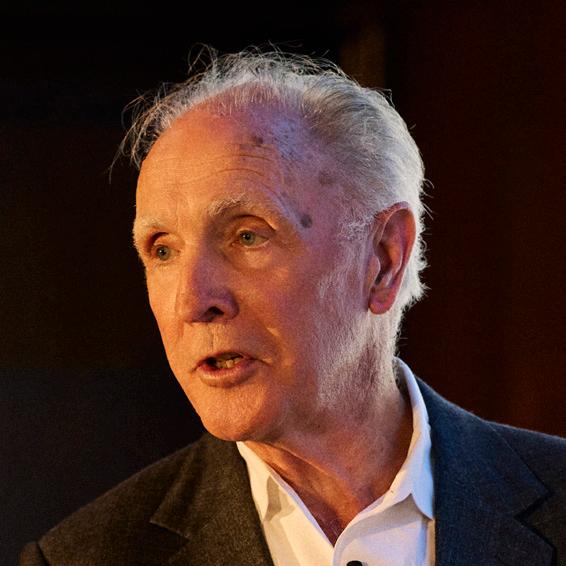
“These findings signal a new era for the fitness industry.” Detailed statistics and analysis can be found in the full State of the UK Fitness Industry Report 2025, which is available to read – for free – at www.leisuredb.com/publications


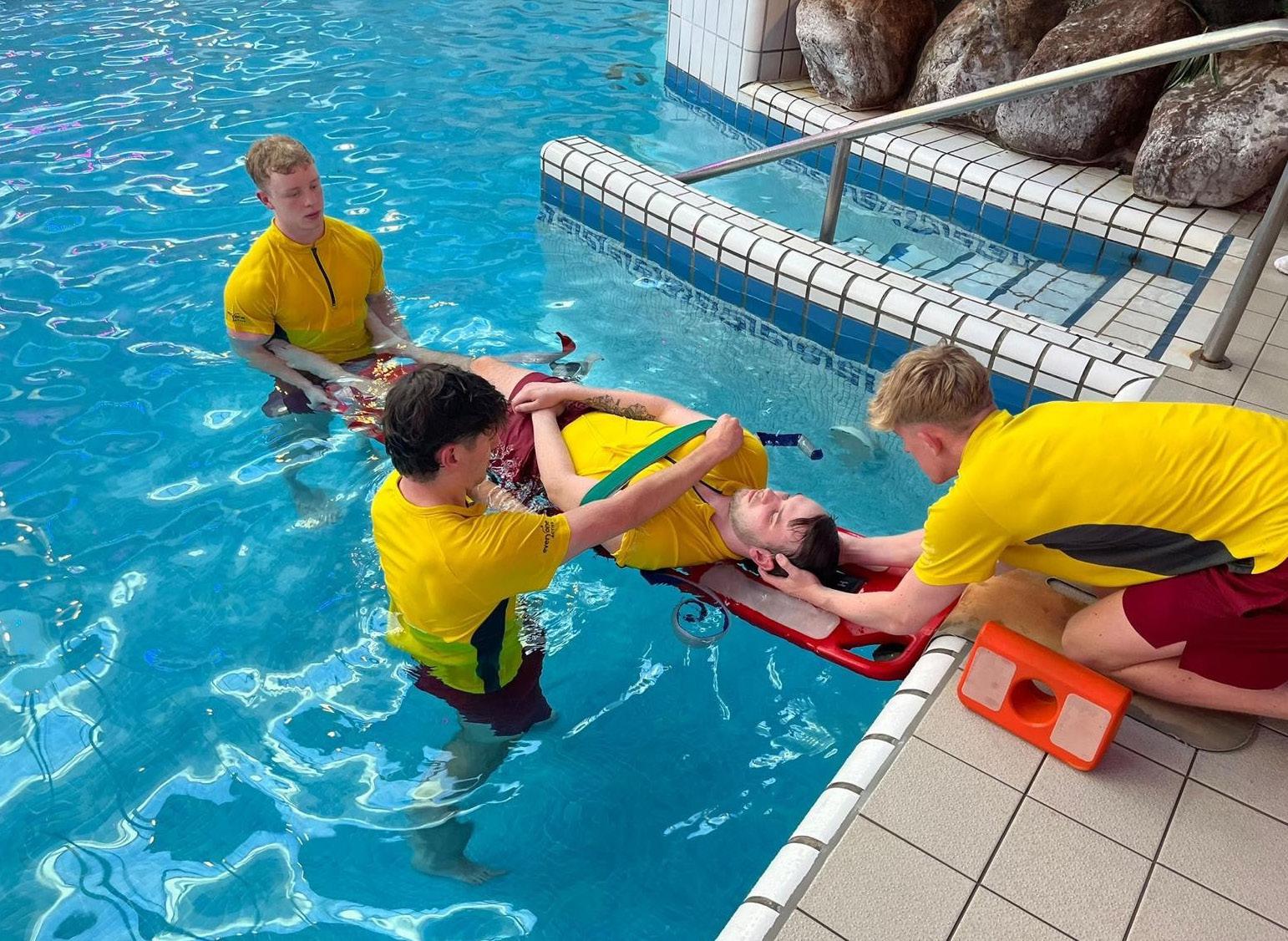
Drowning Prevention Week is strategically timed to take place before the school summer holidays
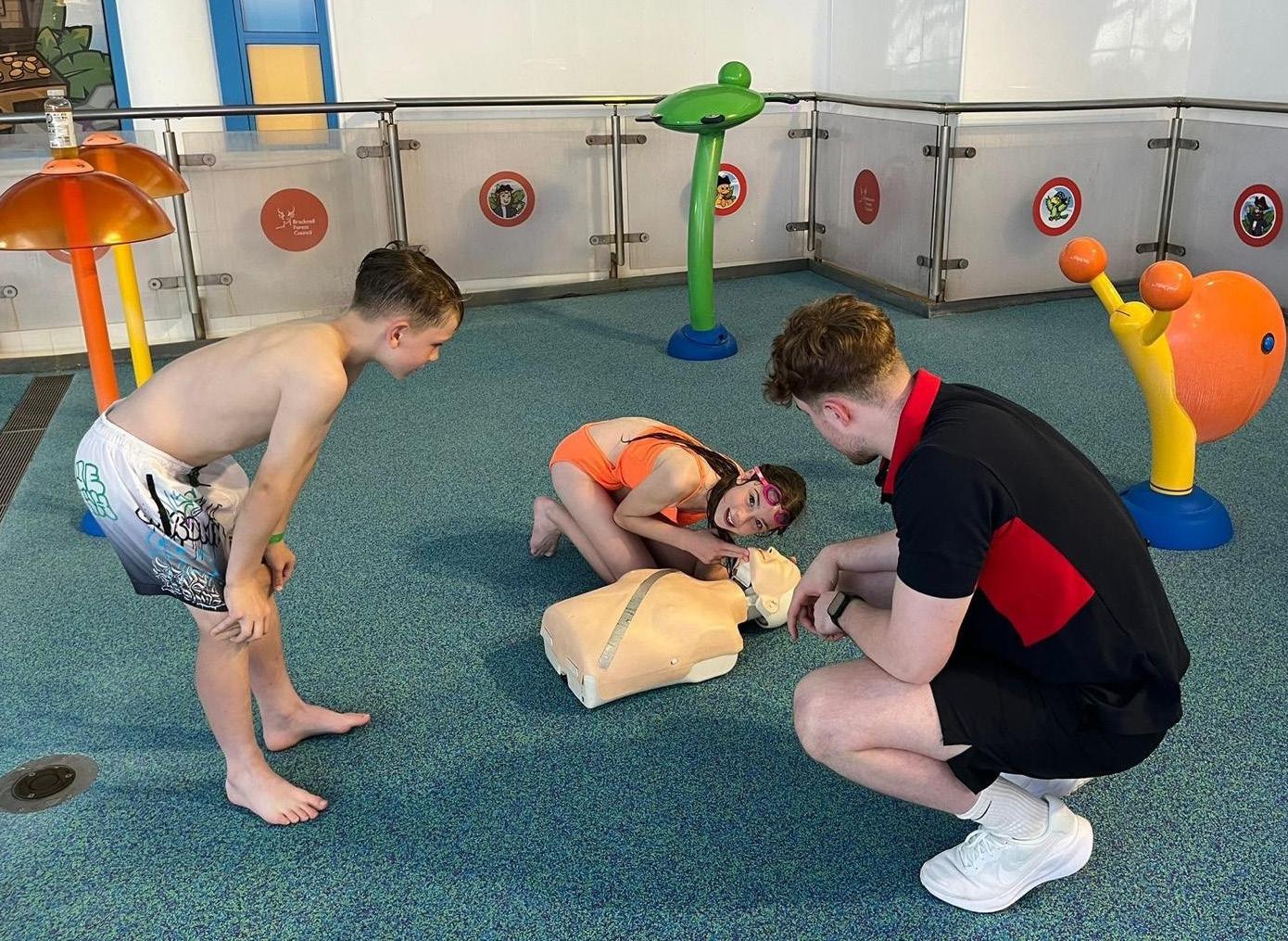
Week allows leisure and pool operators to do more than teach swimming; it’s about saving lives


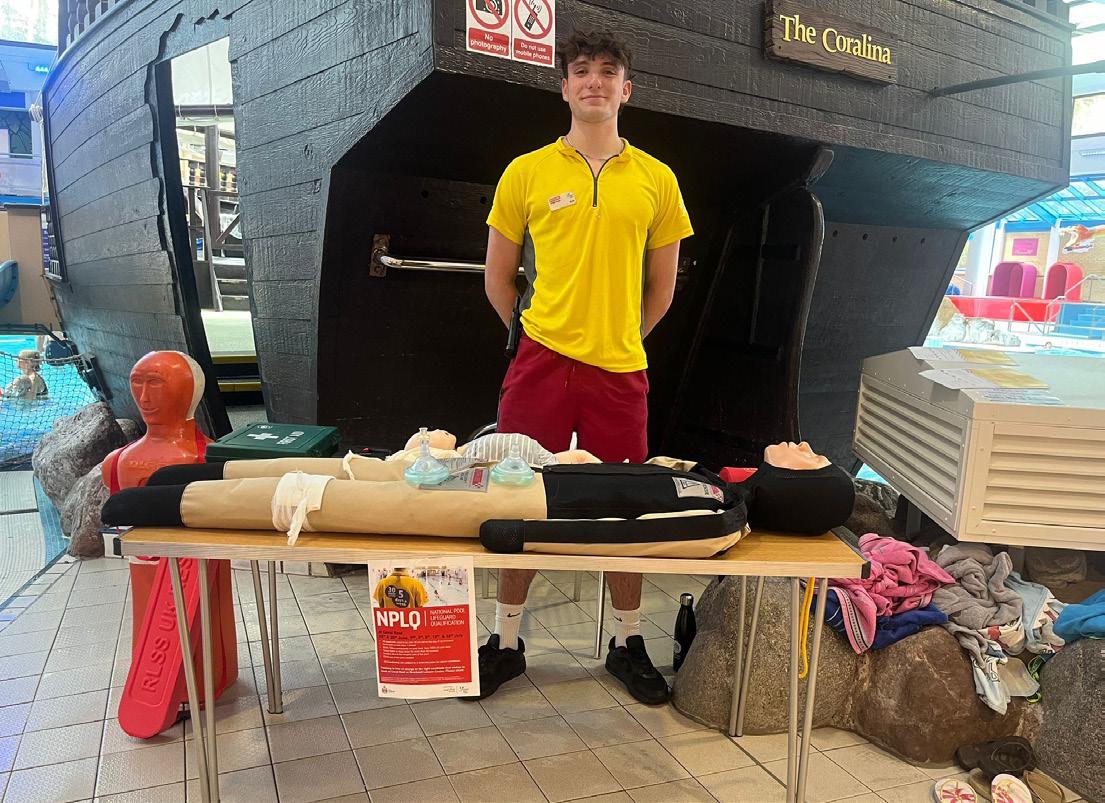
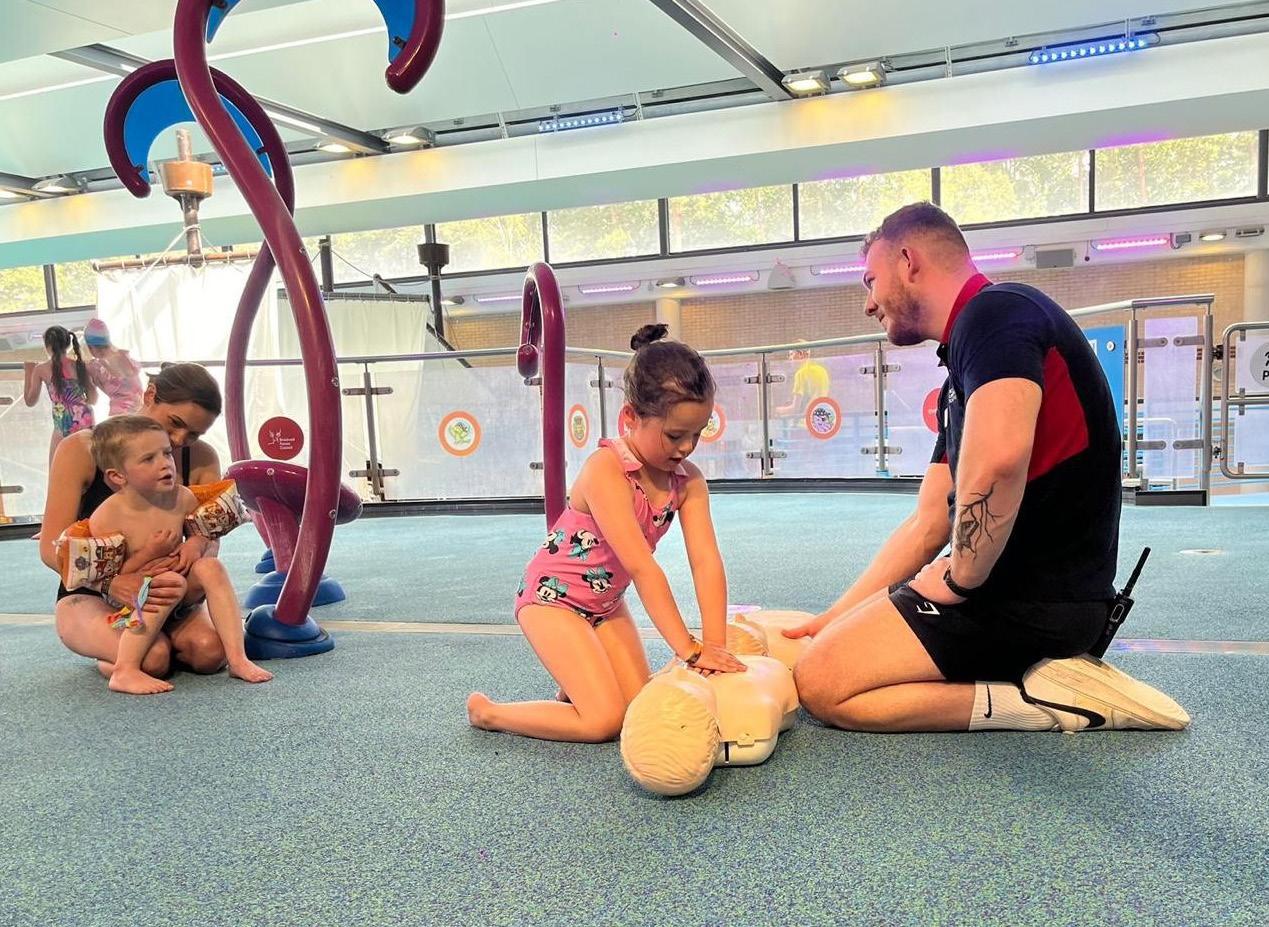
On average, 346 people accidentally lose their lives to drowning each year in the UK and Ireland, and the RLSS UK aims to prevent drowning through high-quality water safety education. RLSS UK is the leading provider of lifesaving and lifeguarding training and water safety education in the UK and Ireland. On average, RLSS UK lifeguards prevent one likelyin-water accident every six minutes.
More than 1.25 million children received water safety education using the free, downloadable educational resources during Drowning Prevention Week 2024. RLSS UK’s Drowning Prevention Week is the national water safety awareness campaign to reduce the number of accidental drownings that occur each year and support families affected by drowning. The next campaign will run from 14-21 June 2025.
On the frontline Coral Reef Waterworld, a popular waterpark in Bracknell, Berkshire, took part in the campaign for the first time in 2024, with positive results. Managed by Everyone Active in partnership with Bracknell Forest Council, Coral Reef was part of a nationwide initiative that saw 140 Everyone Activemanaged leisure centres with pools engage in the annual water safety campaign. During the week, Everyone Active provided crucial water safety information to more than 200,000 children, with Coral Reef playing a pivotal role in the campaign. To maximise community engagement and impact, the centre combined in-school workshops with a hands-on evening event, both offered for free. This was the first time Coral Reef staff had delivered educational content directly to local primary schools.
Targeting Year 5 and 6 students from two local schools, RLSS UK instructors used RLSS UK’s Water Smart and Save a Child’s Life
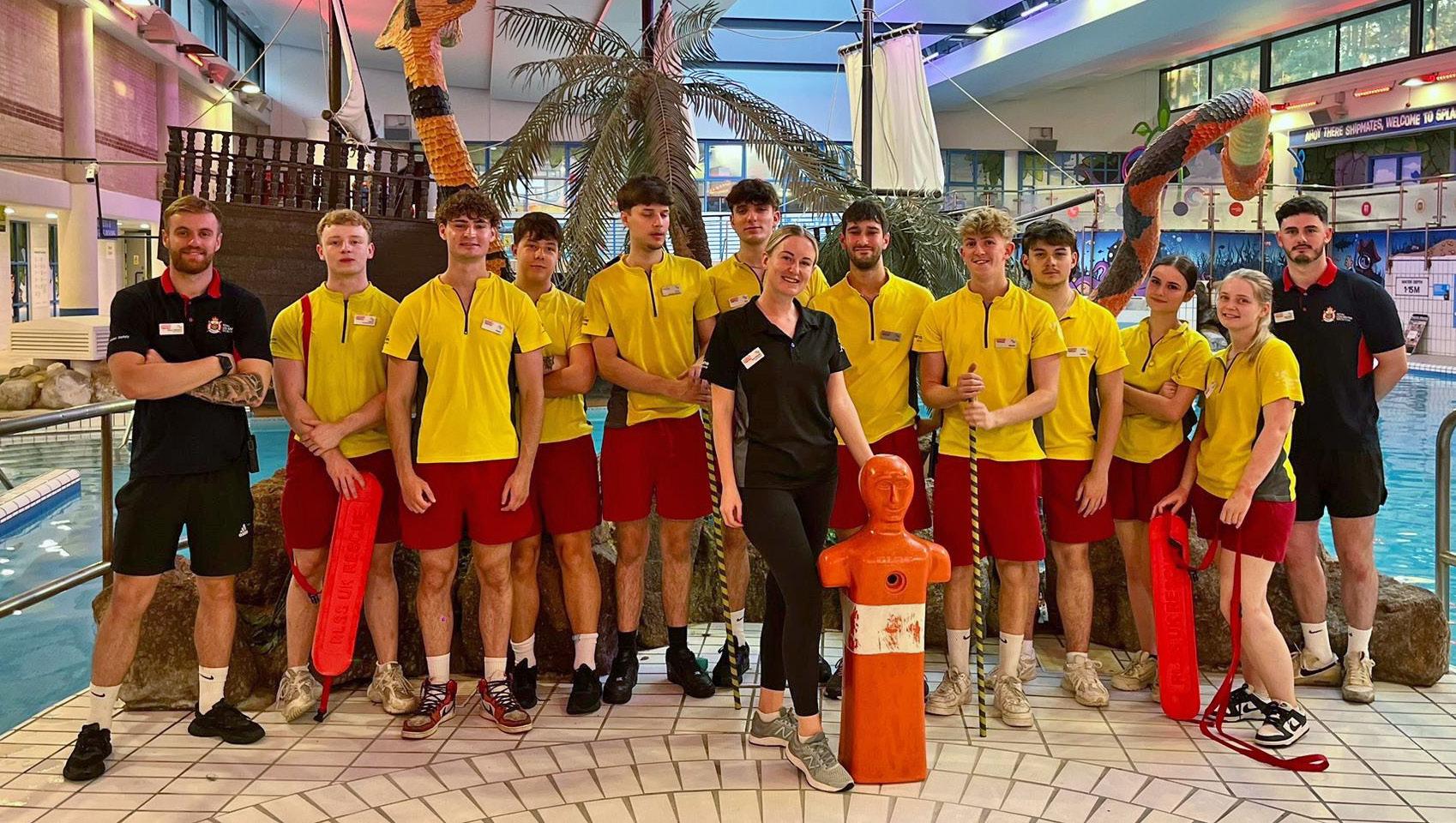


materials to deliver comprehensive water safety education. The interactive sessions included water safety awareness, hazard recognition and emergency response techniques.


be to stay safe around any body of water for life.”


Coral Reef’s DPW activities culminated with an evening event at the centre, hosting more than 700 students and their families and offering a blend of fun and practical water safety education. Attendees participated in various activities, including retrieving a sinkable mannequin, CPR and first aid practice, and throw rope and reach pole exercises.
Lifeguards demonstrated rescue board rescues and explained the various rescue tools they use. The children and their families also enjoyed free access to the waterpark’s pools and slides for an enjoyable and educational experience.
Craig Flippance, General Manager at Coral Reef Waterworld, said: “The family night was absolutely incredible. With more than 700 attendees, it was the perfect way to reinforce the lessons from the previous week. We aimed to make learning about water hazards and lifesaving skills as engaging and hands-on as possible.
“Having good water safety awareness from a young age is absolutely essential. The more interactive and memorable we can make that education, the better prepared these children will
Coral Reef’s DPW activities helped to develop stronger ties with the local community and fostered a sense of accomplishment and teamwork among staff members. Many team members reported deep satisfaction from engaging directly with the children and their families. The various activities kept the work dynamic and engaging, and the team appreciated the positive feedback from the school pupils, their teachers, and their parents, feeling that their efforts were truly valued.
Following the success of its DPW debut, Coral Reef Waterworld plans to expand its water safety outreach in the coming years, engaging with more local schools and increasing the number of workshops offered.
“We recognise the critical importance of water safety education and are proud to support RLSS UK’s campaign to introduce water safety into national curriculums,” Flippance added.
“Through Drowning Prevention Week, we aim to encourage children of all ages to engage with water safety, know what dangers to look out for, how to prepare to stay safe, and how to react should they or others get into trouble in or around water. This initiative helps us engage with new audiences and serves our communities in a meaningful and potentially life saving way.”

While Physical Activity Referral Schemes (PARS) are doing great things, many simply aren’t using the reams of data now being collected to inform their services or highlight the good they do. With news that NHS England is to be abolished, funding for PARS is almost certain to change, meaning data collection and analysis will become even more crucial. Here, three industry-leading experts share how they believe quality data will contribute to the positive future of PARS.
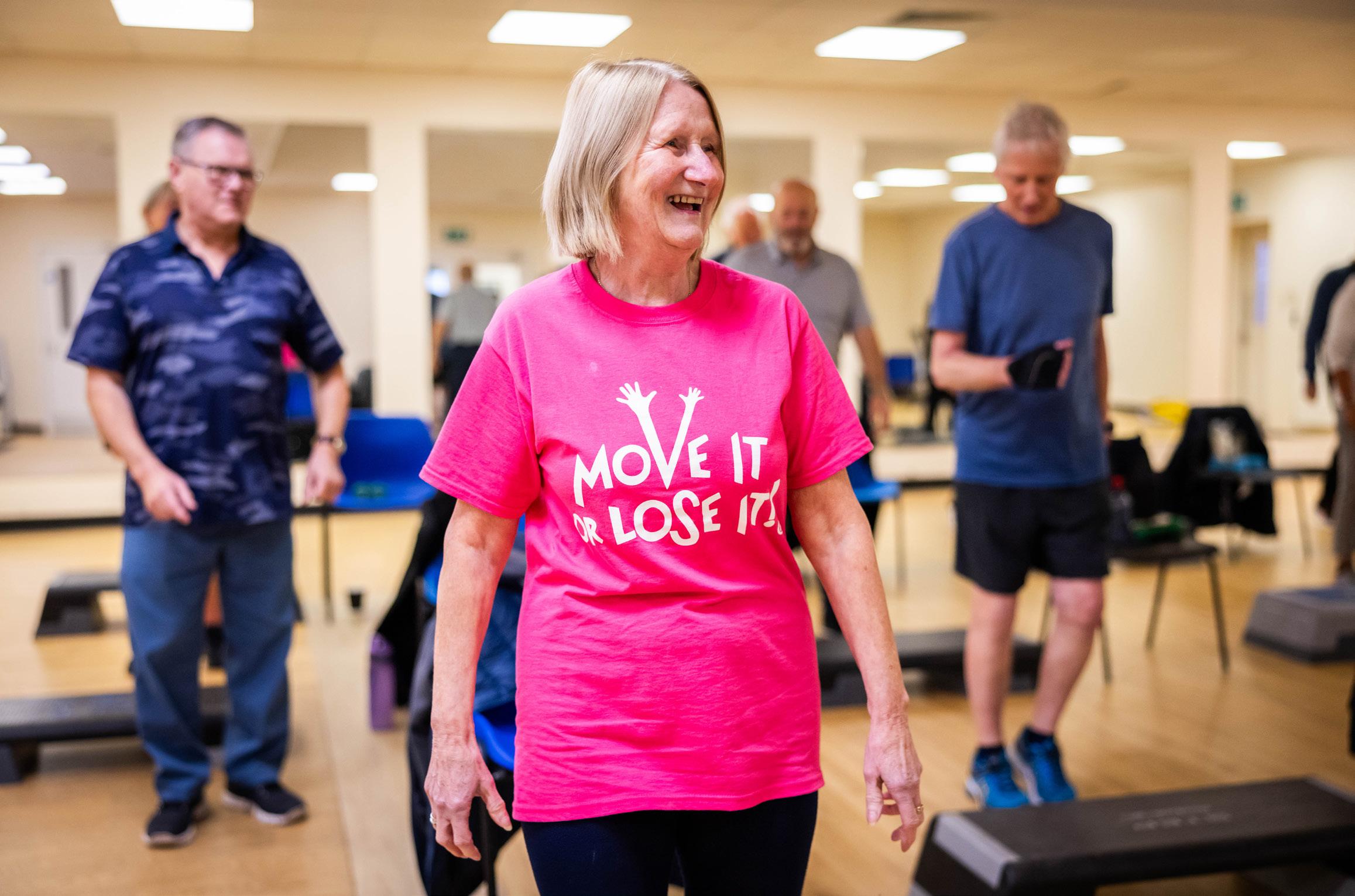
Stuart Stokes, managing director, ReferAll
The funding story for PARS is set to change beyond recognition. As yet, we have no idea what will become of Integrated Care Boards (ICBs) following the abolition of NHS England. Until we do, it’s impossible to gauge whose doors we’re best knocking on for future funding. What I do know is the data PARS are meticulously collecting, cataloguing the success of their services, will become ever more important. While we await clarification on what the funding landscape will look like, now is the time to analyse outcome data to inform future service. We’ve talked about proving the good we do to access funding for years, but outcome data isn’t just a funding tool – operators can use it to create efficiencies and adapt and improve services.

With funding uncertain, outcome data is key to proving value, driving efficiencies and targeting the right audiences
target the people we specifically want to attract, not the 15% who already come through our doors. The industry has pivoted to health, in fact it’s become an industry buzzword, but our marketing hasn’t.
“Outcome data can reveal if your services are truly accessible to all. What’s your penetration like in deprived areas? Are your referrals increasing but turnout remains static? Data can reveal why. Perhaps your activities take place at 10am, when most referrals can’t make it. We should also be using data to better inform marketing and
“The answers are all there, but often our sector is so focused on the doing, it needs help with the analysing. That’s where ReferAll comes in. Our starting point was helping people to easily, accurately collect data. Now they have it, we’re invested in teaching operators to analyse it for improvement and change. That analysis will lead to small, granular improvements and greater efficiencies, which will mean, when the time comes, operators can prove beyond doubt that PARS are worth investing in.”
John Oxley, CEO, Life Leisure
For me, good data is about proving the effectiveness of physical activity as a health intervention; funding is secondary. Health is broader than the NHS and our sector must prove we are a valued contributor to the wider integrated care system, using physical activity to improve population health and address inequalities.

“State of Life supported us in conducting an evaluative study across eight of Greater Manchester’s 10 boroughs, to better understand the impact of PARS on health and wellbeing and the resulting social and economic value. Early findings, revealed in May, show participants’ life satisfaction and happiness improved overall – by 1.32 points and 1.11 points respectively on the 0-10 WELLBY scale*. Health and mental wellbeing also improved, while anxiety and loneliness decreased. The economic value of this increase is estimated to be more than £20,000 per person. The challenge now is to take this learning and determine how we deliver these results consistently and at scale throughout the UK in order to evidence that we can work more effectively with health care providers.
“NICE guidelines have remained unchanged for years, stating that ‘NICE is unable to differentiate between the effectiveness or cost effectiveness
Good data is about proving the effectiveness of physical activity as a health intervention
of different types of scheme because there is little evidence of effectiveness’. We need to heed those comments and use the State of Life’s insights to develop a set of national standards and scale a consistent nationwide approach, thereby delivering even more compelling results. A great challenge for the sector is to use these results to demonstrate the effect we have is meaningful and guidance should be altered to encourage health care partners to utilise physical activity as a health intervention. Only this will ensure active wellbeing becomes integral to the wider integrated care system.”
* WELLBY (Wellbeing-adjusted Life Year) is defined as a change in life satisfaction of 1 point on a scale of 0-10, affecting one person for one year. 1 WELLBY is given a value of £17,000. If we assume a life satisfaction impact of 1.32 points persists for a year, we can multiply this number by £17,000 to estimate the monetary value of the wellbeing impact – £22,000 per person, per year.
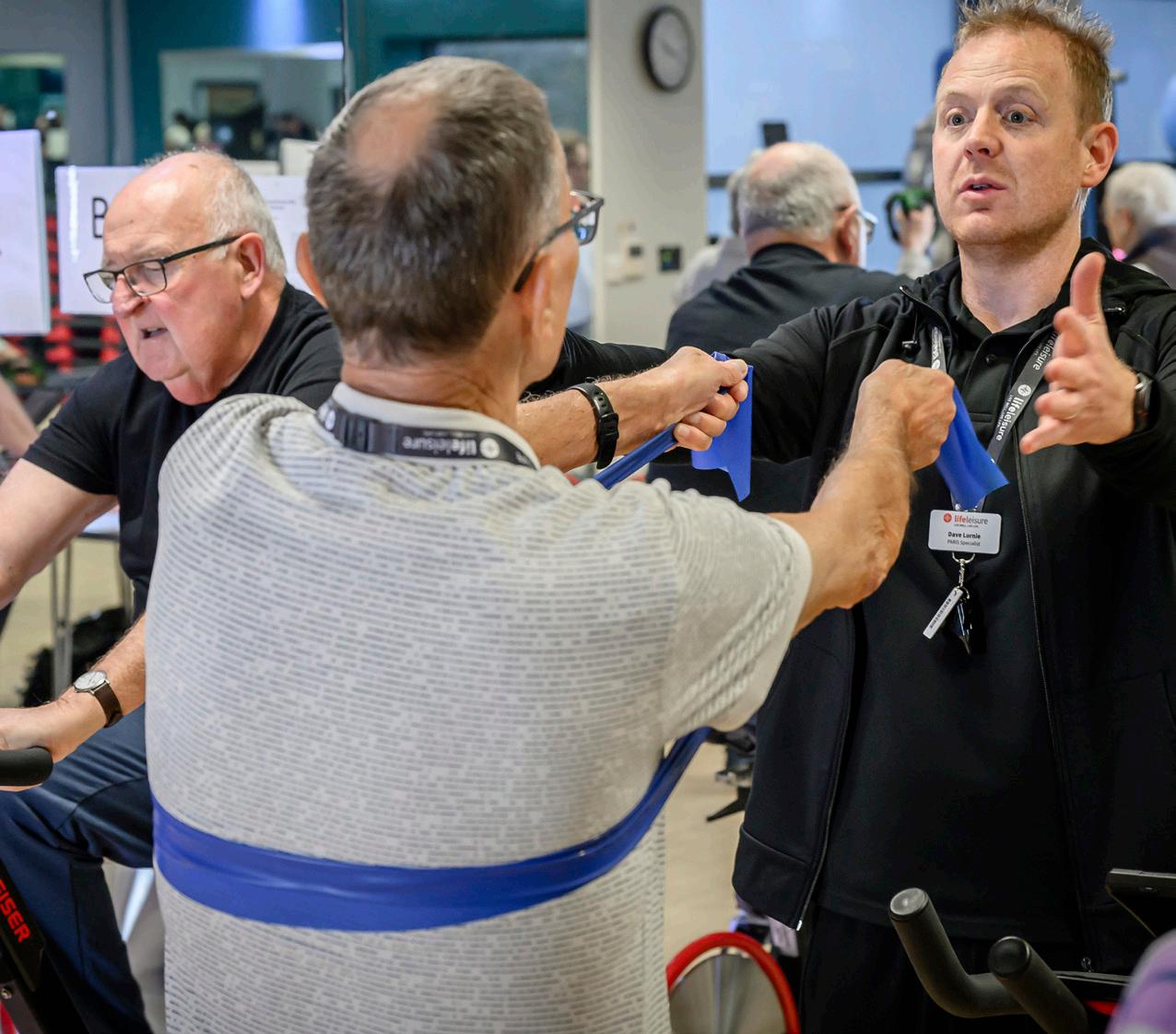
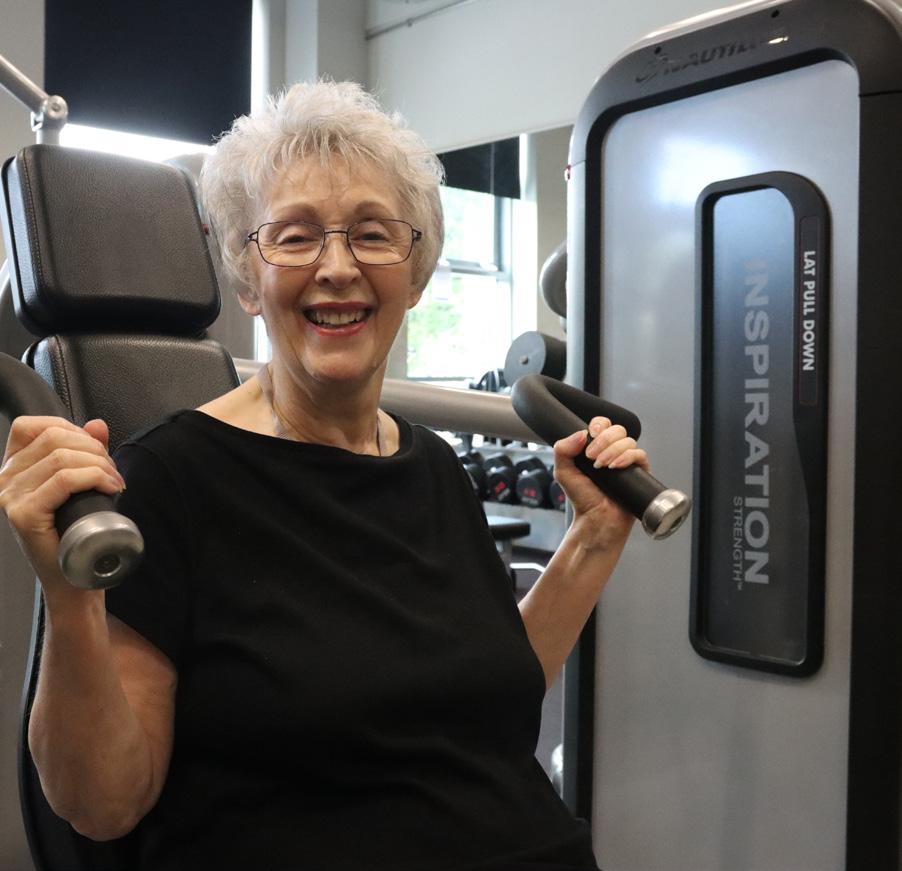
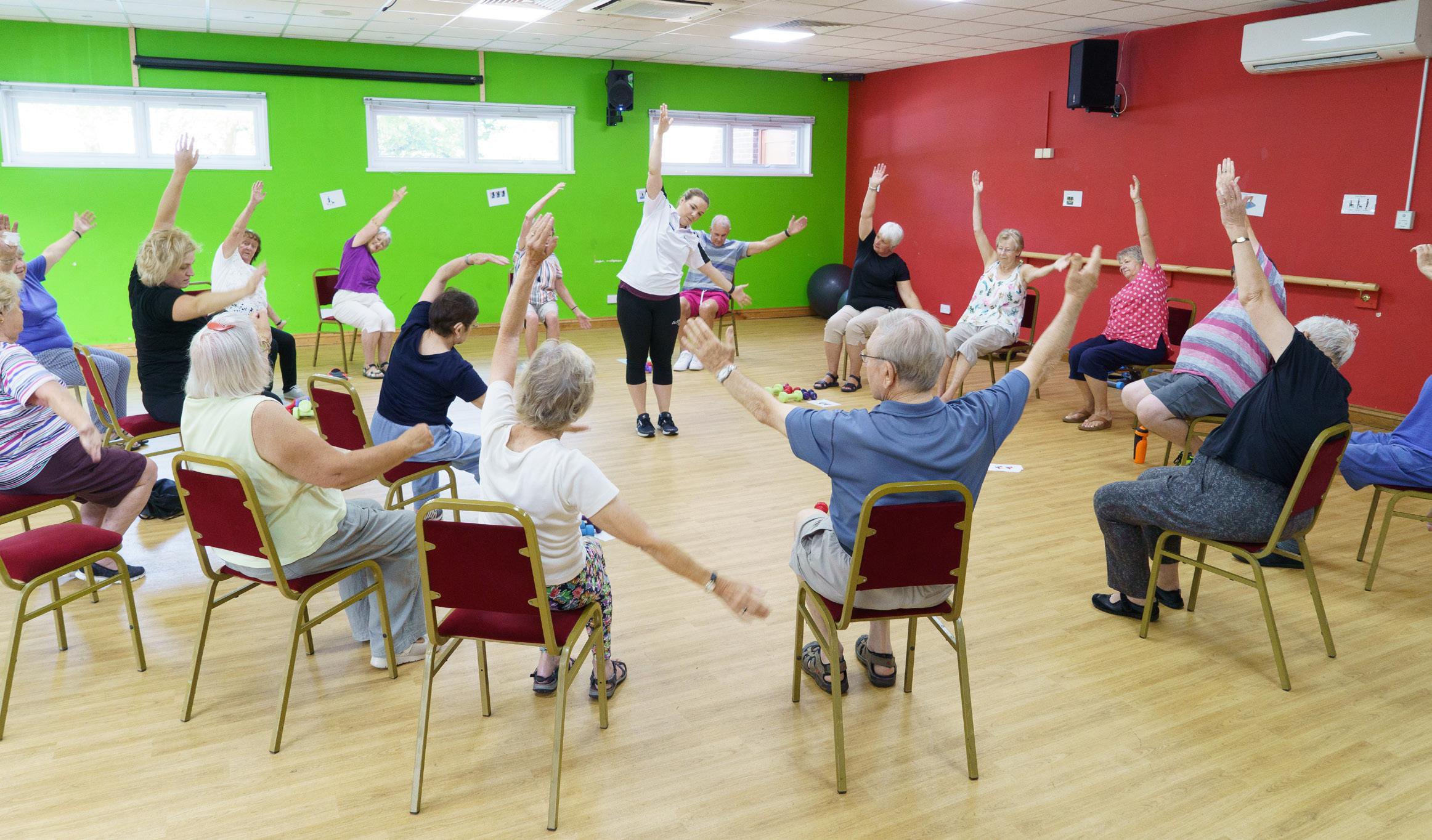
For me, the real value of PARS data is in chronicling the benefits to health to prove we’re reaching deprived areas, tackling inequalities and contributing to a reduction in GP visits, as well as to inform how we move forward as an organisation. We know all of this anecdotally; proving it is the holy grail. What we can measure we can manage.

“We use our data to inform decisions on what PARS sessions we put on, where and when, and to ensure we’re making profits we can reinvest in our services. But the challenge is we’re not data analysts and increasingly the sector expects us to be. Working to get people active and improve health, inspiring communities to move more, that’s where we excel.
“Our solution was to share our data with business analysts at Bristol University. Early findings show people who come to us via our health-related programmes stay considerably longer as a member (up to 10 months), elongating the health benefits to them while also driving revenue to allow us to do more good work. Older members are very consistent – once they start seeing benefits, they’re not only members for life but our biggest advocates. We knew this anecdotally; now we can prove it.
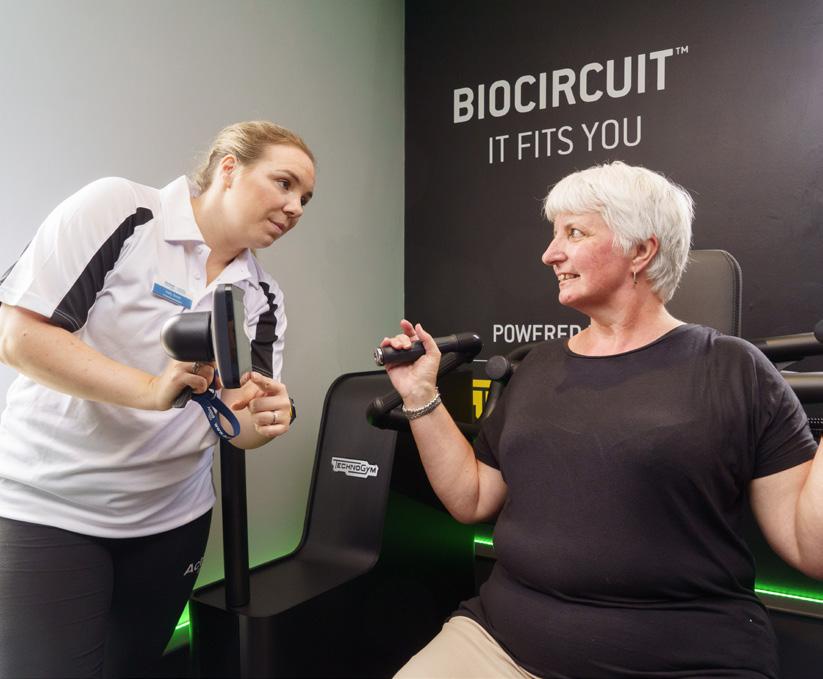
PARS data lets us prove health impact, optimise sessions and reinvest profits to advance community wellbeing
“Now we’re working towards integrating our XN Leisure management software with ReferAll and the Technogym ecosystem, so we can evidence everything from where our referrals come from and how long they stay, to what biometric improvements they make. This type of data intelligence is crucial for informing future business models and how we’ll fund our PARS and affordable community hubs so we keep moving forwards.”
As low as £1.20 per pair
Retail-ready packaging
